WHAT OFT WAS THOUGHT
Volume 16 | 2023/2024





Volume

Volume 16 2023/2024
Published by the Alpha Alpha Xi Chapter
Sigma Tau Delta, The International English Honor Society
Barry University, Department of English and Foreign Languages
Faculty Journal Advisors: Andrea Greenbaum, Ph.D.
Christina Crossgrove, MFA
Sigma Tau Delta Advisors: Lillian Schanfield, Ph.D.
Patricia Feito, Ph.D.
Graphic Design: Mateo Gomez, M.B.A.
Chapter Members: Alyssa Diaz
Alexander Orozco
Michael Bennett
Copyright© 2023 Sigma Tau Delta, Department of English and Foreign Languages. Barry University, Miami Shores, FL
All rights reserved under International and Pan American Copyright Conventions. Published in the United States by Alpha Alpha Xi Chapter of Sigma Tau Delta, The International English Honor Society.
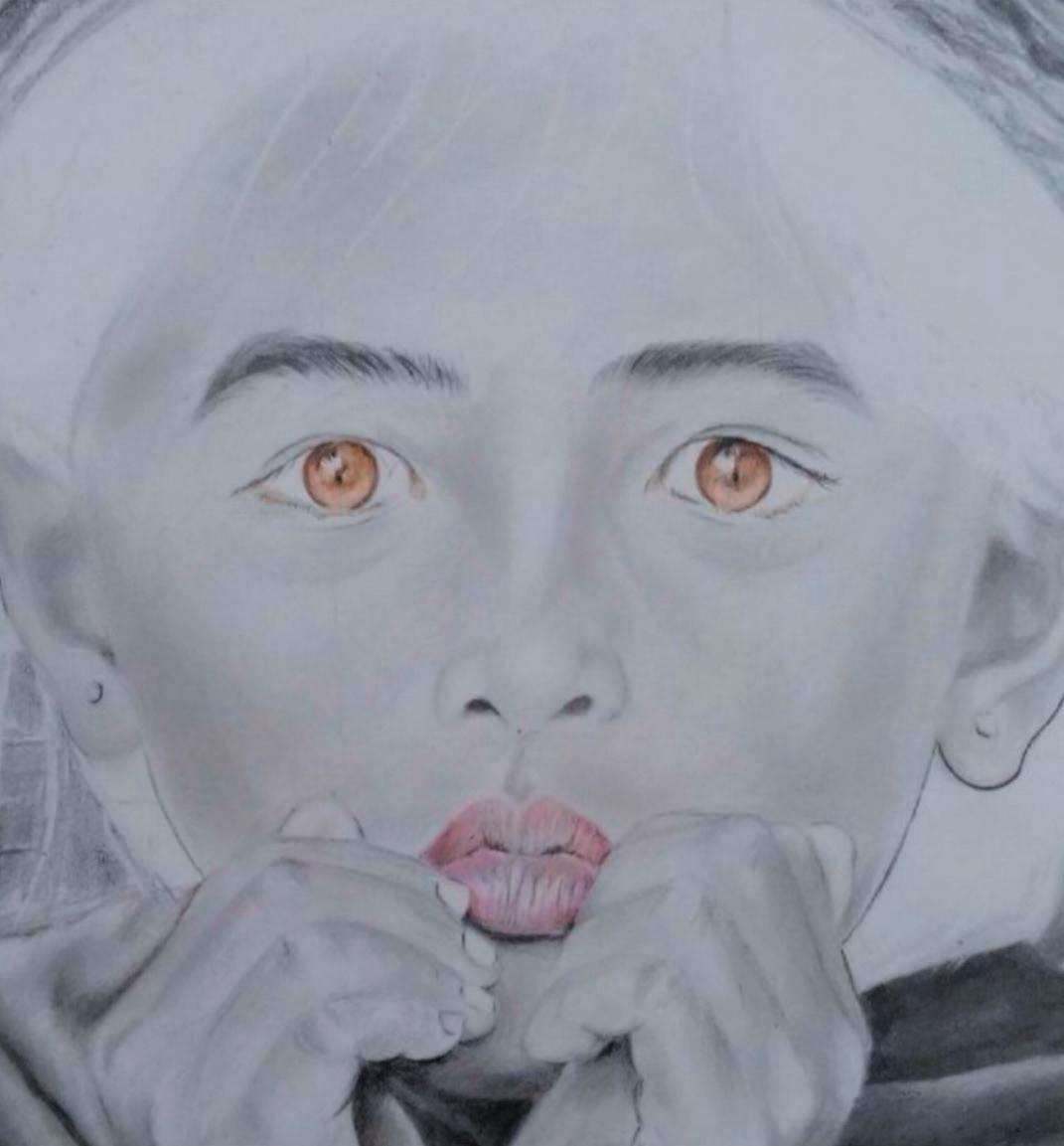
The members of Sigma Tau Delta (STD), the International English Honor Society (Alpha Alpha Xi Chapter), are pleased to present the work of student authors, artists, and photographers of Barry University. Our journal is open to an array of genres, including fiction, poetry, hint fiction, essays, photography, and graphic novels.
We are able to gather these entries through sponsoring an annual writing competition and a call for journal submissions. Our chapter members solicit entries, vet the submissions, and render their opinions as judges. The activity of reviewing and deciding on particular entries as worthy of publication helps them confront essential critical questions of artistic merit.
We are pleased to include, as well, the winning submission for the Dr. Helen Connell Film Essay Award. This award is intended to honor the memory of a faculty member who was a remarkable film scholar, historian, and critic, and also to promote the study of film as a critical art form.
With each new issue we feel the need to explain the allusive title of our journal. What Oft Was Thought is a clause taken from “Essay on Criticism,” a long poem by the eighteenth-century poet, Alexander Pope. The words appear in the following couplet:
What oft was thought, but ne’er so well expressed.
It means that while many have insight into human experience (“what oft was thought”), few have the ability to express these thoughts eloquently. We believe that those selected for this year’s issue articulate the struggle and the wonder of what it means to be human.
Our chapter is indebted to Dr. Karen Callaghan, Dean of the College of Arts and Sciences, who generously funds this project. Dr. Laura Alonso-Gallo, Chair of the Department of English and Foreign Languages, who nourishes this journal for our department and the university; Hamilton Gutierrez, Administrative Assistant extraordinaire, Gabrielle Laforest, Student Assistant, Mateo Gomez, Marketing Coordinator, and RemiJin Camping, Assistant Professor of Photography who encouraged our talented students to submit their beautiful art.
The Food Stamps office is overflowing with bodies. It makes sense.
Feeding the mouths of all the people who put food in our mouths.

Nina felt as if she was floating toward the dark skyline, toward the tall buildings’ rooftops that stared in silence. The sand was cold under her back; before she moved to Miami, she thought that sand was all the same, but it was not.
In her country, the sand was rougher and you couldn’t shake it off that easily. It stayed with you forever, one way or the other. It didn’t matter how good you showered, how much you cleaned a place, or how strongly you shook a backpack or a towel, the sand would stay. There were times when, even after years, she would still find a little grain hiding in the corner of a backpack, a microscopic piece of memory.
Luca was telling her that Argentina’s sand was different as well, tougher, more golden, and darker. Then, he kissed her. His lips tasted like sea salt mixed with alcohol, and his skin was warm under her touch. The night was surrounding them, hiding them from the rest of the world.
Nina was light but numb at the same time. While Luca was slowly tracing her neckline with his mouth, she saw an airplane in the distance. However, she couldn’t hear its roaring, she couldn’t hear anything besides the waves and the low music coming from his speaker. It was as if there was nothing else at all or nobody else at all.
“I better stop,” he said against her ear, “You’re driving me crazy.”

She laughed, then laid on her stomach to stare at the sea. She had never seen a sea as blue as Miami’s, yet, she liked it better that way, when it was so dark that she couldn’t tell it apart from the sky. It made her feel like she could walk in the water and disappear somewhere else.
“What are you thinking about?” Luca asked her, resting his head on her back, right on her Venus dimples.
“That it’s cold,” she lied.
He took a sip of the beer that they were sharing, some weird stuff mixed with orange that he bought at the minimarket down the street; it actually tasted better than she expected. While he drank, she wondered how much it was going to hurt to never see him again once she went back to her country. She hadn’t told him about it yet, she wasn’t sure if she should have. After all, they didn’t know each other that much. Maybe he wouldn’t have cared, but Nina knew that she did care already, enough for the thought of it to cause a little crack in her heart.
He handed her the beer and started talking about his ex. She knew a little about the story already because, when they met, he said that he never really wanted to talk to anybody about it until he met her, and she felt very flattered.
“I wonder if she’s happy with the new guy.”
“Do you still love her?”
“Not anymore, no.”
She thought about her ex, about how much she had loved him, for so long, while now she couldn’t feel a thing anymore. Love was funny that way; it made you think that it would last forever and that nothing would ever compare to it, but then, just like that, it could simply end and go away; her only consolation was the awareness that those little cracks, caused by Luca, would eventually congeal.
When they finished their beer, they went back to the main street. He offered to walk her to her place and, while they walked in silence, she wished to go back on the beach and lay forever on the sand with him, sharing sad thoughts, songs, and a beer that tasted like orange. But instead, they got to her apartment and, before he went home, they had sex.
When Nina woke up the next morning, she still had sand on her. She grabbed a grain from her leg to look at it, rolling it between her fingertips, thinking about how she was light but numb at the same time.

Wow! I can’t believe we’re already in middle school! I know, right!



Well, good luck on your first day!
Wow that girl is so pretty

I just want to go home
Hey, my name is John, I think you’re really pretty. I was wondering if I can have your number? Awe, thank you. Yeah sure, we can be friends.
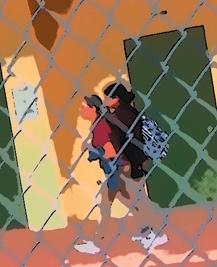
December, 2013



Car ride home…

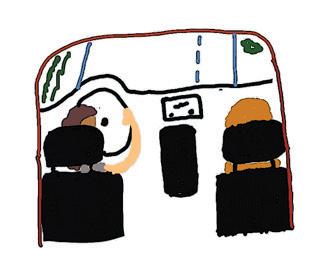
Dude… You know she’s a six grader right?


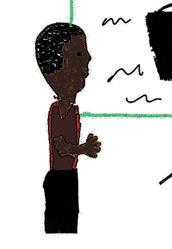
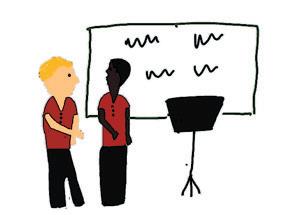
No way! This should be easy then.
How was school?
Okay, I guess.
ugh what a long day. I wonder what tia is doing. I miss her so much.

Okay class
Today We are going to watch a movie as a celebration before winter break
Hey Jaime, come sit with me.
So we’ve been texting for a few months now and I think it’s about time we kiss and take things to the next level.
Josselynnn!! Get your stupid ass down stairs and was these damn dishes!
Why are you so mean all the time?
I hate my life.
Because you don’t listen. It’s like I raised a retard.
Don’t be nervous I’ll lead the way.
OH no no no!
I’ve never kissed anyone before!


Woah why is jaime sitting with John?
She does know he has a girlfriend right?

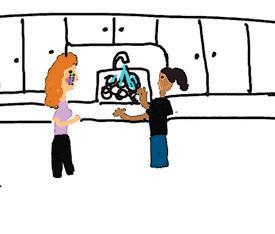
Okay. No way they just kissed!
We have to tell his girl friend!
I know you are sad jaime but what you did was wrong. You’re the type of girl to get pregnant at 13.
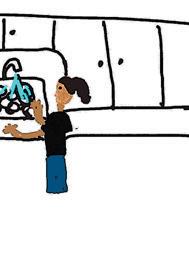
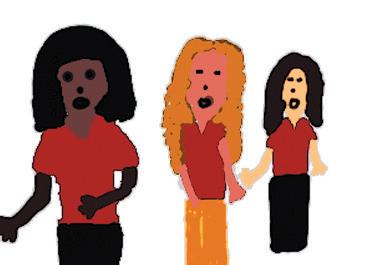

Hey bitch, so I heard YOU KISSED MY BOYFRIEND?

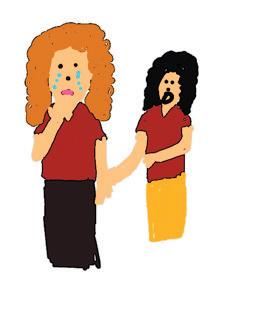


He only wants you for your boobs I hope you know that.
This is so embarrassing , everyone at school thinks I’m a hoe.
I hate school, I hate John, I hate my life, I just want this nightmare to be over.




But I didn’t know he had a girl friend. How is this my fault?
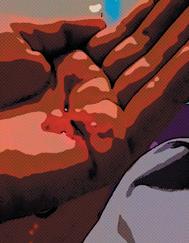
Jaime can you please put a real smile on your face? You’re ruining the picture.
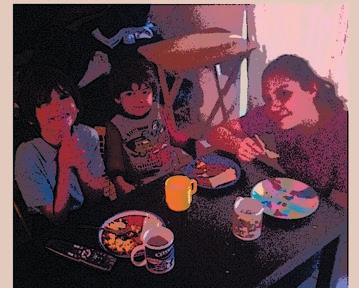
Hey I’m Davon, I was wondering if I could have your number? I want to be friends. Aren’t you friends with John? I rather not.

Two weeks later…



What are you laughing at?
Just a friend mom.
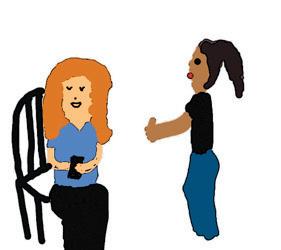
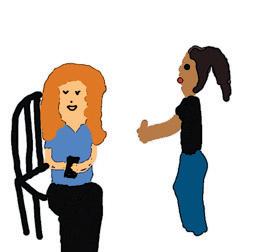
Better not be a boy!
Hahahah!
Do you like this picture?






I’m not like John, or the rest of them. You seem nice and I just want to be friends.
Okay, I guess i’ll give you a chance.


Wow ! You’re so beautiful. You deserve the world.
Awe. Thank you, no one has ever told me that before.
Well, you deserve to know. You’re really special.
Some times it’s hard to feel that way when people are continuously putting me down. I feel worthless.
Hi.
Hey Davon!

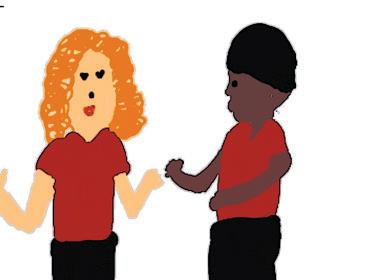
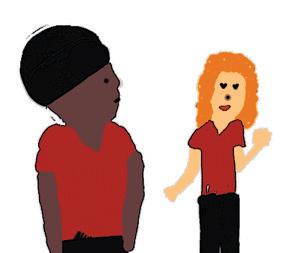

Is something wrong?
Please don’t feel that way Jaime. You have hella worth.
Thank you Davon.
I’ve told a few people yeah. But aren’t we?



Are you telling people that we are talking?

I mean yeah but I kinda didn’t want to tell anyone.
I think it’s best we keep it between us.
I’ll talk to you at school tomorrow okay?



Oh okay. But why?
Well, people already talk about you because of the John thing. I don’t want to make it worse since I’m his friend.

Okay, goodnight!

Hey tia, I miss you.
I wish he knew he makes everything better. I guess you have a point.
I wish I would have never kissed John. Im so stupid.
Hey Jaime, so I asked Davon if you guys were talking and he told me you weren’t.

Why did you lie? You’re so desperate.


I miss you more baby girl.
I thought we were talking. I guess I was wrong.
I saw him all over this girl today in p.e. he seemed to really like her.
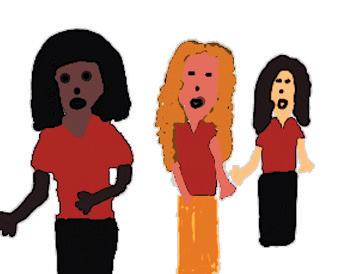








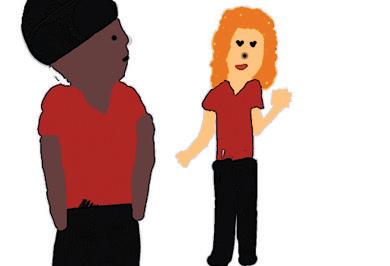
Who? You shouldn’t care jaime he doesn’t like you.

Hey Davon, someone at school told me you were all over another girl in p.e
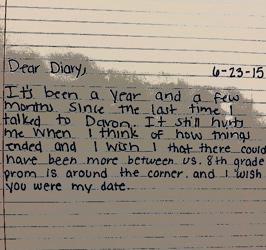
Jamie, you know I only want you. Stop tripping.




A year and a half later…

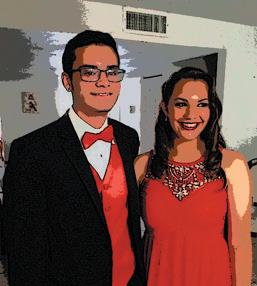
Okay!
How was your day smily?
He hasn’t told me I look pretty. Do I look bad?

So what do you think? You like the dress?


Yeah, you look really good.

Who keeps tex-

It was good. How about you?
It was Good beautiful.

Come on lets go dance.

I just saw the prom pictures you posted. You look so beautiful. I miss you. Hope you have a great night.


 - Davon
- Davon





no reason for the why no prayer for the past no knife to cut the silence and no shield against the blast.
So, we mourn together but we grieve alone, silenced by our loss— we think about a love that lived, about the person we’d once known. the Sadness holds complete control it is the greatest antagonist to men. unable to be conquered or understood until it breaks our hearts again.
a universal emotion
a rare feeling that is felt by all a commonality that does not unite us, only makes way for our fall.
because Sadness is the shred of shared humanity that allows us to know how a stranger feels, because Sadness is the ideal unifier that makes our loneliness so real.
So now when I get sad, (as I often do) I try to remember that my pain is humane, a part of life— nothing unique or new.
But today I find myself with others in Sadness’ infamous sea. thrown in by the death of a friend surrounded by those who knew he. drowning in a single sadness— the water itself is what we share. while the changing currents tear us apart, pulling us here and there.
A sea of friends in the sea of sadness. Each of us swim, sink, or float alone memories are our life vests, closure is our home.
Today I swim the sea with others who are drowning in their thoughts, Some floating in their faith, some choking on hope forgot.

But for me the sea of sadness Is nothing new to fear. I have passed her often on my journey despite attempts to stay clear.
The sea has made me smart, the Sadness has made me strong, and now I know when to fight the current and when to go along.
Students thrive when they understand how a class is applicable to their everyday lives. This has been a growing realization in the field of education and a staple of modernist classroom pedagogy that has been developing predominantly in the digital age. Teachers are so focused on remaining relevant in terms of social concerns that we often do not confront the social issues directly present in the classroom. As a student, I have personally found that through the exploration of literature, especially world literature, I have been able to explore and confront class conflict within the classroom. The social forces that exist to divide people, such as class culture and ethnocentrism, close the doors that teachers work so hard to open. Literature studies in the United States are often ethnocentric, that is to say, they often evaluate other writings based on the merits of their own culture, thereby blocking out other ideals that challenge their own. As it stands, literature solely focused on the ethnocentric ideals of a students’ home country lacks the fundamental expression of “globalization” that is the focus of the 21st century. It is critical for students to explore the philosophies and values of other societies throughout the centuries in order to connect them to values that extend past boundaries and inform them of social issues that remain persistent in our global culture. This analysis is conducted through understanding the purpose as to why we teach literature to students in the first place, as well as analyzing what methods teachers employ to try and connect their lessons and their class to the real-world applications that students crave. I will assess how effective these methods are for creating class consciousness
This very question has plagued literature teachers, regardless of experience or capabilities. Students often ask, “Why are we even reading this?” A teacher beginning their brand-new chapter in teaching literature might not have the necessary experience needed to fundamentally satisfy that question. A veteran teacher may have a much more defined answer, but it might not satisfy the curiosity of a student or promote them to leave that state of ambivalence and truly get them motivated to learn. That question is the most important question a literature teacher must answer, and it will be asked without fail. When we teach literature, it is critical to understand that the duty of teachers is to teach practical information. Schaufele (2019), however, notes that “Unfortunately, far too frequently one will observe teachers and students engaged in a study of literature without ever really having reflected on the nature of literature itself” (p. 147). Teachers and students together are involved in the process of understanding literature, and therefore, when seeking the practical the teacher must outline the purpose of the text. To answer the question, “Why are we reading this?”, we should respond, “To challenge conventional ideals.” Many times, we as human beings face strife and conflict that extends beyond the classroom and act as foils to the pure and honest society that remains the quintessential standard of morality. That is why a good teacher will eagerly “lead students into a text that contains explicit scenes of misogyny, violent marital abuse, crippling depression, and political corruption” (Schaufele, 2019, p. 146). But a truly great teacher will first go out of their way to explain that “reading literature in school, particularly literature that is not easily digestible; especially literature that challenges and disrupts” (Schaufele, 2019, p. 146). It is when we challenge the way that students view society and ask them to critically analyze the words of those outside of their usual scope, we connect them to themes and questions that are universal and “globalize” them. A teacher capable of providing an environment that effectively allows students to safely question the conflicts that plague the classroom with something as unseen at times as class through traversing themes and concepts that may not always be comfortable creates stronger, more knowledgeable students.
As such, literature can “contribute to a students’ civic readiness due to the fact that narratives, be them fictional or historical, are very likely to introduce and expose them to universal characters and themes that truly represent civility and good citizenship” (Kheldi, 2019, p. 125). The desire to go beyond what is comfortable and understand the unknown while developing social skills allows for a population to be pluralistic; where it enables people to believe in various, unique views and tolerate each other’s beliefs even when they do not match their own.
The evolution of teaching strategies has, over the last couple of decades, adapted a more modern and highly theoretical approach to education. With the advent of technological advancements, it has allowed teachers
to more vividly and effectively convey certain messages that would not have been possible during prior eras of education, and less so due to certain educational pedagogies. Furthermore, students are far more connected with the technology of their era than any other. It is a battlefield that teachers must enter the frontlines of, competing with the likes of media that is readily accessible and becoming more and more simple to digest. To teach literature is to teach expression as a medium using written prose. Therefore, it is necessary to develop strategies to keep students invested in their learning and synthesize the themes and messages that these literary masters are trying to impart. Hermeneutics is a branch of knowledge that deals with interpretation. This concept is not revolutionary, as is the case with social creatures capable of pattern recognition, human beings are intuitive and interpretive. We seek out information, internalize it, and then define its significance to ourselves. This is a core of hermeneutic learning in which “instead of seeking to discover or articulate a particular method of interpretation, hermeneutics investigates the nature of the world as it is” (Schaufele, 2019, p. 149). Literature, especially world literature, gives students the opportunity to explore the world as it really is. This world is fraught with conflict and understanding that conflict allows them to attain that greater knowledge that schools were created for.
While Hermeneutics is concerned with observable experiences of the world, which can be discerned through reading literature, Reader Response Theory (RRT) as introduced in the 1930s by Louise Rosenblatt, remains a relevant strategy of teaching literature to students. It is best defined thus: “RRT pedagogically promotes learners’ (as active readers) freedom, enjoyment, and engagement in reading texts and literary works usually illuminated by such critical and emotionally personal responses” (Iskhak, Mujiyanto, & Hartono, 2020, p. 118). This strategy puts control of the students’ learning on the student as guided by the teacher. With RRT, a teacher guides through questions designed to ascertain general understanding and overall emotional connection to the text. Furthermore, this inspires a more democratic classroom in which students discuss concepts freely and collaborate in learning and subjectively connect to these concepts. Because reading literature should be understood as such: a subjective experience which educates on objective topics. “Though in several decades RRT has not been popular among scholars, its framework is recently used across contexts of language educations” (Iskhak, Mujiyanto, & Hartono, 2020, p. 119). As such, RRT is dependent on the teaching philosophy of the instructor and the level of control they are willing to relinquish to their students. RRT conflicts with many pre-established teaching paradigms which place importance on the ideals of the teacher and their expertise compared to a more modernized take that places the focus on student growth. A discussion about practicality and the applications of learning cannot be done without discussing the “problem-based” style of teaching, which is defined as, “a contemporary teaching model that has emerged from the need to overcome the weaknesses of traditional teaching and to increase the efficiency of educational work” (Markušić & Sabljić, 2019, p. 20). These models act as a scaffold for teachers to directly manifest questions based on social and class conflict and through the use of literature gain a strong foundation that they can stand on. Problembased teaching “attempt[s] to illuminate the main issue within a certain literary age, the writer’s opus, his or her creative stages and those present in a specific literary work” (Markušić & Sabljić, 2019, 21). In other words, students see the world through the cultivation and culmination of ideas that were required to create a perfect storm for a writer to create a certain work. Literature is created with the express purpose to write about the human condition in some aspect and exploring this creative process through problem-based learning allows the student to create a connection with the author in a way that creates a mirror. A metaphorical mirror that allows for the student to see themselves reflected in another person’s world and culture.
Through the methodical use of instructional techniques and theory, teachers still at times fall flat on the intended goals of connecting students to the real world with aid of literature. Researchers note that, “Even on the rare occasion when a reader does recognize one hundred percent of the text being read, the intended meanings or conclusions and interpretations involved in comprehending the text can result in very different understandings of the text” (Mustofa & Hill, 2018, p.113). Differing interpretations of the text may be the intended result, but it does not always bring positive results. Certain intended messages may not have been garnered and it is the duty of the teacher to teach beyond the traditional teaching paradigms. It is not just about gaining information and understanding the text. But deeply appreciating and wholly being moved by the words of another, regardless of culture or social standing. Although literature holds more than enough potential to educate students on class conflict and can create global consciousness, it is only “when there is a synergy between teacher’s creativity and students’ active participation in the whole process or recognizing words and concepts, researching ideas related to the context, analyzing the author’s style, investigating the social issues and events of the time that it was written,
and comparing the text to other texts” (Mustofa & Hill, 2018, p. 113). The student response to these techniques is the most crucial part of this system. Because it is the student who needs to learn and to grow in this relationship between teacher and student. An effective teacher creates effective instruction and through literature instills a desire to learn about other cultures.
However, there is a clear understanding between teachers and students that not always is there a desire to supersede and transcend barriers and instead become disinterested in readings. This may be “further increased by the selected texts. Indeed, the focus of the syllabus is entirely centered on the study of canonical works and seldom involves modern and non-native literature except for advanced literary studies within which students encounter other kinds of literature, particularly postcolonial texts” (Kheldi, 2019, p. 113). I would like to additionally express my disdain for the current ethnocentric environment schools have developed as evident of the reading selections that we force students to simply memorize. This system sings the praises of predominantly white American and British writers and closes the doors on the scores of different cultures teeming with expressive and differing ideals than those of western society and philosophy. While at times we celebrate the writings of another ethnically diverse writer it is still within the guise of a different American culture.
Literature as a humanities course has been understood as an art form. As with all art there is an applicable cognizance as to how one can appreciate it. Appreciation is not just about glorifying or singing the praises about a piece in world literature. Rather, there is an element of criticism that should be allowed for students to explore and to voice their opinions, positive or negative, about the conditions and effects that a piece is able to inspire within themselves. People are not perfect. Literature is not perfect. However, the capability of a teacher is also defined by the level of agency given to the students by said teacher. Trusting that they can analyze a piece critically and see the beauty and problems within a given work and grasp tightly on the morals and themes that truly coalesce in the human experience. There is a Socrative technique by the name of mimesis; this technique implies analysis of representation or imitation of the real-world in art and literature. Mimesis in essence when used properly allows for students to see the world in literature, even more so in world literature. Within mimesis is the realization of pluralism in education and world literature is a force in education that allows for pluralism to manifest itself to students. This is the symbiotic relationship between the humanities and globalization. A symbiosis between themes present across time and vast regions regardless of barriers. World Literature is more than capable of opening the world and the students of all regions to a wider view of expression that is only possible in a pluralistic society. That challenging students to see a wider world will liberate them from the confines of class conflict. That through knowledge, a human right that should be expressed world-wide, can make us all equal. Students who become conscious of class and the nature of class conflict, become more prepared to combat it. This is the goal of any teacher in the humanities much like any other teacher in another subject matter: Prepare your students for the realworld and teach them to face the problems in their life.

Iskhak, I., Mujiyanto, J., & Hartono, R. (2020). A review on Reader Response Approach to teaching literature at EFL contexts. English Language Teaching, 13(7), 118.
Kheldi, M. (2019). Re-thinking the practice of teaching literature to enhance EFL students’ civic skills: An Algerian perspective. Arab World English Journal, 10(2), 124–135. https://doi.org/10.24093/awej/vol10no2.11
Markušić, J., & Sabljić, J. (2019). Problem-based teaching of literature. Journal of Education and Training Studies, 7(4), 20-29. https://doi.org/10.11114/jets.v7i4.4066
Mustofa, A., & Hill, J. L. (2018). Understanding cultural context in responding to literature: Researching the teaching of literature in EFL classroom context. English Language Teaching, 11(6), 108. https://doi.org/10.5539/elt.v11n6p108
Schaufele, M. (2019). Why are we reading this? Hermeneutic inquiry into the practice of teaching (with) literature. Educational Studies, 56(2), 145–159. https://doi.org/10.1080/00131946.2019.1695212
When my father passed, he left me with a sadness that I had no clue what to do with. I never spoke to anyone about my thoughts or feelings because I didn’t think they mattered. This careless strategy of keeping everything bottled up resulted in years of mental and emotional warfare that has, up-to-date affected some, if not all, of my relationships. It was not until I started writing that I understood the capacity of my feelings; that nothing this intense should have to be contained within one heart alone. After my first book, With Grief Came Gardens, I was able to remove the cap from this shaken bottle of emotions, pour the fizz on 138 pages and tell the world, “Here.” From this, I learned that everything beautiful has a consequence. The consequence was losing a treasured part of me, the beauty has been all that has come with it. I’ve transitioned from struggling to share sorrow with even those closest to me, to learning that it is okay to scream from the rooftops that you are not okay. I’ve dissected my heart on a platter, for even complete strangers to examine—it has been one of the scariest things I’ve ever done, yet I’ve never been so excited to be so terrified. Life will never be the same without my father, but I am forever grateful for this gift within writing he has given me. I am thankful for the sadness because I have learned exactly what I should do with it. I used to have such a hard time with goodbyes. In effort to avoid them, I’d cling to those who had no intention of staying. Foolishly, I hoped that if I tried hard enough, I could convince people I was someone worth staying for. The error in this is that you should never stay where your worth isn’t recognized. They will not always tell you that you are not what they want; believe them when they show you. Leave Yesterday Alone. It is important to cherish parts of your past but understand that letting go is essential to growth. Pain will fade when you learn to let go.

The graphic novel Not My Shame, by T.O. Walker, dives deep into the traumatic childhood memories of a parent dealing with post-traumatic stress disorder, due to her past unwanted sexual experience. The goal of this essay is to shed some light on the clever graphic depictions in the novels, the importance of having open communication with parents, shifting societal views on female sexual abuse victims, and seeking medical attention after these traumatic times.
Sexual abuse among minors has been a universal issue around the globe. According to statistics, it’s reported that in the United States, one in five females and one in twenty males are sexual abuse victims, ranging between the ages of 6-17 years (Finkelhor 1). Childhood trauma causes a laundry list of effects on the development of the individual. Some changes or indications for someone suffering from active abuse or PTSD, as stated by Kathleen T. Brady et al. include the onset of multiple mental disorders, the replaying of traumatic memories, substance abuse, self-harm, changing appearances or wardrobe, unhealthy coping mechanisms, etc. (408).
The struggle of childhood PTSD shown in Not My Shame starts with Walker developing mental health issues such as depression, anxiety, and dissociative disorder. Dissociative disorder is a natural coping mechanism for those who’ve experienced traumatic events in their lives (Banyard et al. 855). The overall experience took a major toll on Walker’s life before she was able to find peace with her situation. In the upcoming paragraph, I’ll explain some ways she was able to find peace, improve her life, and strengthen her relationship with loved ones. Some ways Walker experienced PTSD were through nightmares and daydreams, “Why can’t I stop it from coming into my head? That is how traumatic memories work. They aren’t something you choose” (57). This quote is about how the memories of Walker’s assault constantly clouding her mind while raising her son. As the decline of Walker’s mental health continues, along with the constant feeling of guilt and shame from the situation, things take a toll on relationships around her.
Walker began to distance herself from her husband, son, extended family, and friends. The only thing that seemed to relieve some of her pain was the consumption of alcohol, self-harming to numb the pain, and disconnecting herself from the event because it was too painful to bear, “I want to feel nothing. I don’t want to do this, but it calms my mind. I wish it would stay like this. This silent stillness could become a habit. I want to escape. Drinking and self-harm provide an escape, but if we disconnect from ourselves and our experiences then we disconnect from others” (Walker 26-28). This quote explains, how Walker is hurting from her unhealed childhood sexual abuse, and to ease the pain, she is physically harming her body with a razor and substances. As previously stated, we understand that Walker struggles with depression, anxiety, and dissociative disorder due to her sexual abuse as a child. The natural response for having these mental illnesses for others and Walker is, to distance themselves from all family and friends because they feel guilty for being violated in such a manner (Burke et al. 272). The graphics in this novel allow the readers to feel the emotions of the author, Walker depicted herself as a distorted individual who is going through the rollercoaster of emotions caused by her abuser. She also adds a splash of real photos of her reported overdose attempts and police reports for authenticity. Similarly, personality changes occur in Daddy’s Girl, specifically in the story called “Daddy Knows Best.” The protagonist, Lily, is grown up and has many beautiful outfits in her room, but she insists on wearing the longest, baggiest sweater to hide her figure. The readers can tell Lily loses self-esteem because of her father’s sexual abuse. Lily has the feeling of needing to cover up, so her father doesn’t find an interest in her. In this novel, we learn that Lily still has her eating disorder. “All night I kept wondering how I could eat all those Cheetos and still feel so empty inside” (Drechsler 27). This quote reflects the cookie incident when she was younger. Lily still uses food as a comfort for her abuse, but only now, no matter how much she eats, she still feels empty inside.
Another source that supports the challenges of individuals who experienced childhood abuse is the graphic novel Daddy’s Girl by Debbie Drechsler. The challenges faced by Lily are dissociative and an eating disorder. The protagonist, Lily in “Visitors in The Night” has to frequently endure abuse from her dad, all while her sister is inches away from her. This page caused me to believe that her sister had an idea of what the father was doing to Lily. The sister must have been familiar with the sounds of the room, because she was not a bit curious about all the ruckus in the room. This leads me to believe, the father possibly used to abuse her when she was younger, and she is frightened to aid Lily (Drechsler 3). The graphics depicted for this page show how distressed the sister appears, her eyes open as
the abuse takes place. This demonstrates to readers that Lily’s sister was frightened beyond being able to move, and she didn’t want to be next in that horrible ordeal. From the abuse Lily experiences, her mental health is depleting with dissociative moments that help her pass time when her dad is taking advantage of her. The graphic depiction of a spirit-like apparition floating above her ceiling, keeping her company, as her father is in the room, is a genius move by Drechsler, since it illustrates the child-like mindset of Lily (Drechsler 5-6). Another dissociative moment Lily experiences during an abusive situation is when she kept her focus on their dog, Marvin, who the father throws against the wall, since the dog tried to protect her. Marvin means a lot to Lily; he was her support dog and helped her through tough times (Drechsler 13-14). One unhealthy habit Lily manifests is an eating disorder. After the abuse, she stuffs her face with cookies to remove the taste of her father out of her mouth, and the next day she is feeling ill from this decision (Drechsler 4).
From these supporting examples, there is evidence of declining mental health moments and psychological changes within these females in their graphic novels. Some advancements in mental health that were able to help Walker in Not My Shame was to participate in therapy to begin the process of not blaming herself for the situation, to release the constant thought of what women thought of her, sharing her story with her husband and loved ones, using art to express herself, and protesting for sexual awareness. The author notes, “The responses I had when I was a kid weren’t o.k. I want to help change things. I want people to learn from my experience” (Walker 65). Walker’s thoughts as a child weren’t aligned properly, but now that she’s finally found peace within her situation, she is starting to encourage others to get help and taking a stand for those who are still silenced.
As Walker suggests, speaking out about sexual abuse is another strong way to help yourself and others struggling with their emotions. Another individual using protest as a tool to help others become aware of childhood sexual abuse and PTSD is Damien Rider. He is a skateboarder who is bringing awareness to those still struggling through his foundation: “The Rider Foundation aims to build training institutes to share the tools with others struggling through their adversity, especially abused children and people suffering from PTSD” (Skateboarder to Raise PTSD and Child Abuse Awareness). Rider has created an organization for those who are still struggling to find peace in their lives. This organization can one day help many who are stuck in their nightmare.
One of the reasons it’s tough for individuals to share their stories is the societal blame placed on victims, who are often accused of “asking for it.” Women are constantly patronized to retract their statement against men, so their reputation isn’t tainted. Societal views are flawed to the point of victim shaming, so it is no wonder that women often are afraid to speak out against their aggressor. According to Walker, “It makes me so angry, why didn’t they protect children before? Why are people still blaming victims? I should just be pleased that they are protecting kids. But if they can do that now why not before?” (63). Walker expresses her anger towards the way the police and society treated her as a child, but she is grateful for the small changes in the world where they are slowly believing women more.
To reduce the shame and guilt within these child abuse victims, communication is very important for the healing process to begin. They must also have a support system, whether it’s seeing a therapist, journaling, having a support animal, or just having the support of siblings or parents. Being able to have others to talk to during the depression stages, anxiety attacks, and nightmares at night is the start of regaining their lives back. Typically, victims often begin to share when they finally feel understood and heard for the first time. It isn’t uncommon that relationships with others begin to restore. These individuals are going through a tough time, but once they are allowed to heal, they will communicate their emotions on their abuse (Larsen et al. 435).
Poor communication is viewed in Daddy’s Girl by Debbie Drechsler in “The Big News.” Lily’s home situation is depressing. She feels like her mother dislikes her, her boyfriend is out of town, and she has no one to talk to about her sexual abuse. It is clear to the readers that Lily doesn’t have open communication with anyone in her life. This suggests to readers that her her mom knows about the sexual abuse between her husband and daughter. Below is a dialogue from the novel that shows the mother’s passive aggression and boiling hatred towards Lily:
Lily: Hi Mom, You, Ok?
Mom: Oh Sure! I’m Fine. I just love to move. It’s such a thrill! Oh yeah, I’m just doing fine and dandy!
Lily: Gee, Mom, I wish I could make you happy.
Mom: Yeah. I wish you could, too. I’ve wished it about a million times. (Drechsler 25)
Walker is living proof of how life can be a living hell, but one can, eventually, make progress in their recovery. T.O. Walker was given the chance to receive professional help from her therapist to gain the confidence to then share her story with her loved ones, and, through her art, become an advocate, protesting for others who cannot speak up for themselves. As Walker notes, “Something is empowering about telling your own story” (72).
Banyard, Victoria L., and Linda M. Williams. “Characteristics of Child Sexual Abuse as Correlates of Women’s Adjustment: A Prospective Study.” Journal of Marriage and Family, vol. 58, no. 4, 1996, pp. 853–865. JSTOR, www.jstor.org/stable/353975. Accessed 28 Apr. 2021.
Brady, Kathleen T, and Sudie E Back. “Childhood Trauma, Posttraumatic Stress Disorder, and Alcohol Dependence.” Alcohol Research: Current Reviews, National Institute on Alcohol Abuse and Alcoholism, 2012, www.ncbi.nlm.nih.gov/pmc/articles/PMC3860395/.
Burke, Peter J., et al. “Gender Identity, Self-Esteem, and Physical and Sexual Abuse in Dating Relationships.” Social Psychology Quarterly, vol. 51, no. 3, 1988, pp. 272–285. JSTOR, www.jstor.org/stable/2786925. Accessed 28 Apr. 2021.
Drechsler, Debbie. Daddy’s Girl. Fantagraphics, 2008.
Finkelhor, David. “Child Sexual Abuse Statistics.” The National Center for Victims of Crime, The U.S. Department of Health and Human Services’ Children’s Bureau, 2010, victimsofcrime. org/child-sexual-abuse-statistics/.
Horwitz, Allan V., et al. “The Impact of Childhood Abuse and Neglect on Adult Mental Health: A Prospective Study.” Journal of Health and Social Behavior, vol. 42, no. 2, 2001, pp. 184–201. JSTOR, www.jstor.org/stable/3090177. Accessed 28 Apr. 2021.

Larsen, Carly D., et al. “The Effects of Childhood Abuse on Relationship Quality: Gender Differences and Clinical Implications.” Family Relations, vol. 60, no. 4, 2011, pp. 435–445. JSTOR,www.jstor.org/stable/41236779. Accessed 28 Apr. 2021.
“Skateboarder to Raise PTSD and Child Abuse Awareness.” Springfield News-Leader, Jul 07, 2016. ProQuest, http://ezproxy.barry.edu/login?url=https://www-proquest- com.ezproxy.barry.edu/newspapers/skateboarderraise-ptsd-child-abuse- awareness/docview/1802197243/se-2?accountid=27715.Walker, T. Not My Shame. Singing Drag
Ain’t no peace among the people, So, all the smiles seem deceitful.
They holdin’ pieces, smiling, wylin’, thinkin’ that they evil, The façade they play Knievel.
Given light to corner lights, they cornered in they prequel, Never know when it’s the sequel to the other side.
I’ve seen the mommas crying tears, and I be thinking, Why they had to die? Shoulders weighin’ heavy from the tears family had to cry.
Crooked was the heart, but they had more to offer, truthfully I know that in their heart they asked the question, Why they shooting me? News is always guessing why the crimes is done with scrutiny When half the people there ain’t done nothing but smoke and truancy Frontin’ for the consumer streams.

And so I speak my spoken words and preach the peace and speak it fluently Yet to reach the peak I’m climbing nonstop, dutifully.
Looking at my demons like there’s nothing they could do to me, I’m deemed for great success no weapon formed against could threaten me.
Living in Argentina, I spent half of my youth with my great-grandmother, Irma, who I refer to as my grandmother or (Abue). It was certainly a wonderful experience, as I recall it. Due to her Spanish ancestry, she was a stern and obstinate woman. She had wrinkled white skin and dyed brown hair that was cut short. She always wore a perfume that smelled like an elderly person: faintly sweet and dusty. She was also confined to a wheelchair, due to multiple strokes, but she never failed to provide me with wisdom, love, necessities, and a great upbringing. In Argentina, we resided in a city named Boulogne. Broken glass bottles strewn across the fence wall revealed to me, as a child, that it was adjacent to a hazardous neighborhood; therefore, I always remained on my grandma’s property. Fortunately, it was a very beautiful property, with a dark green metal door as the entry, a garden on the right that Irma meticulously maintained, and a storage area to the left, where my mother’s uncle worked on his wood items. Straight down was the residence of my grandmother was a three-bedroom, one-bathroom home. In front of her home was a large staircase leading up to my mother’s and my three-bedroom, one-bathroom residence. One of the bedrooms was converted into a storage space, and the windows in my room were made of plastic squares that would break when there were big storms. Between Irma’s home and the staircase was a sizable patio, and directly below the patio was a spooky, useless hallway that I would sometimes enter and then flee, because it was so terrifying. As a result of the high-pitched echo, my ears would become irritated whenever I would move or speak loudly in that creepy and cold hall. Her large lemon tree, which stood in the midst of her garden, stood out among her property’s features. She adored the tree, as well as all of her small flowers and plants.
When she used to prepare milanesas (a thin slice of beef or chicken dipped into beaten eggs, seasoned with salt and other condiments such as parsley and garlic, dipped in breadcrumbs, and shallow-fried in oil or baked in the oven), she would send me to her garden to retrieve a lemon, so that we could squeeze it over the milanesa for the final touch. It was the best thing ever. Her ability to make any cuisine taste like heaven was one of my favorite things about her. Daily, I would return from school to a delicious meal consisting of meats, boiled potatoes, sweet potatoes, corn, and other vegetables. As a child, I viewed it as dull and unimpressive, but now it is the dish I miss the most. Despite the fact that my mother and I moved frequently, as if we were foreigners traveling within our own nation, living with Irma was the most normal memory of my childhood. The final picture I have of her is when I went to say my goodbyes, because my mother and I were moving to the United States. By that time, she was in really bad shape; she couldn’t talk, move, or eat much, but a caretaker took excellent care of her until her last breath. I stood there with my mother and Irma, smiling for a photograph, a final picture with grandma. I gave her one more kiss on her cold, soft, wrinkly, white, bony cheek before leaving for a better life, one in which I now live differently because of Irma.
Throughout my life, my numerous memories of my grandma have encouraged me to engage in a great deal of self-reflection. Irma’s determination to go through the day despite her health and conditions was one of my favorite characteristics about her. In addition to cooking, gardening, and taking care of me, she also got a puppy, with whom she played almost daily. It was a brown, female, street-dog named Colita that my grandma acquired a few years before my mother and I moved to a different area. After lunch, Irma and Colita would play for approximately an hour, where she would toss a ball back and forth. I used to sit next to her, occasionally taking turns throwing the ball or running back and forth with Colita; now that I think about it, I miss that physical endurance. Grandma would constantly laugh at Colita, because she would sometimes fool her into throwing the ball, and Colita would run after nothing. For safety concerns, while my mother worked late at night, I stayed with my grandma until my mom returned home. On these days, I would have dinner with Irma while watching the Argentinian news on television, but my favorite meal was lunch, since we would watch El Zorro from beginning to end every day. In addition to the monotonous television news, the most entertaining aspect of dinner with Irma was playing card games until I fell asleep between her dining room chairs. She was a clever woman who routinely cheated at card games.
On the day Irma died, my mother and I were returning home, following a great day at Young Circle. I was approximately 14 years old and going through a terrible phase of adolescence, so it was a surprise that I had a wonderful day with my mother during that time. When we were heading home, we were simply making jokes and laughing wildly, but I had a peculiar thought at that time. My brain had just instructed me to treasure this moment
and this memory with my mother. A few seconds later, my mother received a phone call from my grandmother’s caretaker informing her of Irma’s passing. It was an extremely serious and shocking event. I pondered, “Why can’t I ever enjoy a pleasant moment without anything negative occurring?” A few years after her passing, I discovered the meaning of Carpe Diem from the film Dead Poets Society in my high school English class. It was enlightening and prompted me to consider Irma’s life. Despite all odds, she made the most of every day of her life. When I arrived home from high school, I could smell her perfume when I opened the door. Yes, the old person’s fragrance. It was a creepy moment, and I agree with you if you believe I was psychotic, if just for that minute. Then, I began to dream about her; one dream felt so real—it was her spirit speaking to me; she reassured me in the dream that everything would be alright. I don’t know how to explain it, but I felt after that dream that she had my back and was watching out for me. You may not believe in guardian angels or spiritual energies, but if there’s one thing I want you to believe in after reading this: the importance of living in the present moment every day. Enjoy all your moments, even the bad ones. Be mindful of every moment of your life. Be mindful on good, terrible, and even mediocre days alike, just as Irma did regardless of the number of strokes she had or the years she lived. I do not know what exactly passed through my grandmother’s head, but I do know that she had both terrible and wonderful days and that she embraced each one. You never know when your or someone else’s final breath will be, but what you and I both know is to seize experiences that might inspire you in the future. Even the hardest days may eventually have a wonderful outcome. Irma taught me many lessons, but one of them is to seize the day. She taught me to be present, so that I would not have regrets in the future. Till this day, her lemon tree is still standing; it has survived for decades, yielding good, awful, and even mediocre lemons, but it is undoubtedly making someone’s milanesas the highlight of their day. Whatever it is, I will still stand and welcome every moment of my life, just like the lemon tree, just like grandma did. After all, I am certain that Irma is still consistently watching over me and even her lemon tree.
I remain nocturnal to see the midnight sky spool away

I caress a smooth boulder that lay bare upon Earth’s face
Barefooted on her soft, luscious meadows, I stand and pray
So quiet, so peaceful, the world is such a beautiful place
The morning dew is set to nourish and play
As they are resting on leaves and grass set in universal patterns of crochet
Such perfect little drops, drip silently astray
As flowers eager to bloom; wait for their newborn day
Up to the heavens
I peer in grace
I am in a cavernous beautiful earthly space
Yet, I feel alone and in sorrow and in such pain and in disgrace
Why do many o’ man not have reason or belief for faith?
Poor lowly planet chambered amongst the vastness of space
Coupled upon by a glorious, yet mysterious cosmic lace
My heart cries, the world is such a beautiful place
Charge of mine, against time I race
To save a planet and the human race
Am I the only one that understands?
I feel so gravely displaced
Aloud to the universe, I state my case
But no one cares; I get not even a cold embrace
The world is such a beautiful place
Why is earth such a lonely place?
One of my earliest memories is of me, walking the hallway of Millbrook Elementary school at roughly five or six years old with my mother, and being stopped by my kindergarten teacher, Ms. Gaines. “Joyce is so tall! Have you thought about getting her into sports, or modeling?” This time, the question was directed at my mom. Little did I know that a lifetime of similar height-fueled remarks (many of which included less friendly enthusiasm), were on their way.
Relatively quickly, I understood that I fell into this category of the insecure tall girl. At some point in her life, every tall girl has been made to feel insecure about her height. There’s literally a movie called Tall Girl. It doesn’t start off that way though. Much like grief, there are levels to this sh*t.
The first stage is denial. Yeah, denial.
You know how you ask a guy his height, and he tends to round up a couple inches? Tall girls go through this as well, but in reverse. We round down.
As a 5’6 middle schooler, I would withhold a couple inches when asked the occasional, “How tall are you?!” I would say I was 5’5 1/2, which seemed to be a plausible benchmark. Who the hell was that giraffe fooling? Funny enough, you can be peering over the head of a prepubescent boy (or full-grown man), and they’ll believe you’re shorter than them if you tell them you are. It’s got to be some sort of mental illness. That, or extremely fragile masculinity.
The second stage is anger. Like, I know genetics can be unpredictable, but there is absolutely no freaking reason why my 5’3 mom was given the capability to produce a human female that could grow to be a whopping 5 feet and 10 inches. Make it make sense! Having to deal with being the token tall girl can be downright infuriating.
Next up, bargaining. A young Joyce, night after night, in pleading prayer, asked if one day she could wake up and be “normal” sized. “God, if you make me the same height as the other girls, I promise to love myself more.” There was this incessant need to be like the everyone else—to be ordinary. Shockingly, no amount of bargaining subtracted inches from my height.
I know what you’re thinking. Poor you. You can reach the top shelf, potentially have a career in modeling and get a great view at concerts. Tall girls must be miserable, huh?
Let’s face it, though, for every positive that comes with being a tall girl, there’s a negative on standby. In the world of dating, “too much” height on a woman can be considered masculine, and the famous “Is he taller than me?” is referenced any time one of your friends tries to play matchmaker. Oh, and if you’re dealing with a man who’s insecure in his masculinity, good luck! Being a tall female does not work in your favor. Did you know that only 20% of men in the US are 6 feet and above? I don’t know about you, but as a tall girl who doesn’t plan on bending down to kiss her future husband, I don’t love my odds.
Being a giant isn’t all it’s cracked up to be. Especially not during certain social settings, like parties, when you have to stoop down a few levels to actually hear what’s being said by your average-sized peers. My favorite tallgirl pastime has been the recurrent struggle to find pants that cover my ankles, or sleeves that make it to my wrists. The lack of leg room in confined spaces is always a bonus.
After the realization that you’re damned to being Elastigirl, Lollipop Legs, Miss Skyscraper, or my personal favorite, a Praying Mantis (as my high school technology teacher called me), it can lead to an increased feeling of sadness, and in extreme cases, depression.

The final step, acceptance. Though, as a tall girl, you will surely face many trials and tribulations, eventually you will be able to say that you’re happy with your height and mean it.
It is time we put an end to this epidemic of height shaming that has plagued society and left an irreversible imprint on the hearts of my fellow stallions.
Tall girls, you are so much more than your height. It is normal to grow up with insecurities regarding your
height; people will always make comments on it, good or bad. Never let the words of others make you feel small. Stand tall and wear those high heels!
So, on behalf of the next taller than average girl you see in public, let me save you some trouble. I know I’m tall but thank you for reminding me. Yes, the weather is great up here. No, the WNBA has not drafted me yet. I’m not making you feel short, you are short. I’m not blocking your view; I am the view.

The bottom of the cast list claims the best roles. Nurse #4 is the backbone of the show. She’s an essential worker.

Please help me, God, I feel so alone. When I glance at the mirror, I ask myself, Is this the same girl I used to know?

I barely recognize this girl, who is now broken and shattered. The girl who, once, actually mattered.
Drowning in my own air
Tell me, can you hear my prayers?
I do not want to be in this skin any longer
The pain does not get easier, it just keeps growing stronger.
My own thoughts I cannot control I am trapped in a heartless soul.
Countless countless, sleepless nights
All I ask is that you listen to what I write.
They say what doesn’t kill you makes you stronger
Though, I am struggling to keep my head above the surface for much longer.
My emotions painted like detailed art
However, in reality, my smile hides a thousand tears and a broken heart.
Help me
I beg you please.
The films Clueless (1995) and Autumn de Wilde’s Emma (2020), are different interpretations of Jane Austen’s novel, Emma. With Autumn de Wilde’s version being an adaptation that stays true to the text, shown through the costumes, the locations, the accents, and adapted screenplay. Clueless (1995), on the other hand, is more of a modern—for its time—retelling if the events in Emma were to take place in high school during the mid 90s. The main differences between these films are the settings, the pacing and camerawork, and the dynamics between characters.
Something to note about both films are the style choices and colors. In Emma there are pastels everywhere. The clothing ranges from light greens, whites, pinks, and tans. The 19th century style of clothing are loose-fitting garments. The shots tend to linger, giving the movie a slower pace, as if they were in no rush, especially wealthy people of that time, who would just “waste” the day way, doing whatever they wanted, because they could afford to. Adding to the slow pace is the location of the countryside, included with scenes of the characters taking walks and having a picnic. This way of shooting is helpful for comedic effect, giving the audience time to react to what is happening with the servants. In Clueless, it is all about color saturation, and the filmmaker uses many of the fashion statements of 90s super models, such as matching sets, plaids, and a chic style. The shots are fast paced to show the chaotic life of a popular, rich teenager, and they do not usually linger, unless there is a significant shift in Cher’s character. Most of the comedy comes from Cher, her friends, and schoolmate’s antics.
Though the creative differences in the films are interesting, these films emphasize romantic relationships and the role social status plays in them. The dynamics in the relationships between Emma, her father, and Harriet, are identical to Cher, her father, and Tai. They both take on a paternalistic role in the lives of their children. Because of the lack of a mother figure, they have, subconsciously, become mother figures, and, as such, they are matchmakers. They reiterate the idea that Harriet or Tai can do so much better than the original partners they are attracted to. This is a parody, because a parental figure would, for the most part, want their child to be with the person who makes them happiest, with the exception being if they believed who they are interested in is a bad influence. Both Cher and Emma have a slight authoritative attitude of how they treat Harriet and Tai. This is because their father, their one parental figure, who tends to border the line of overbearing, and, in turn, they mimic that trait.
Women during the 1800s were often expected to follow certain gender roles that were normal for the time. Research suggests that “Victorian woman was expected to be submissive, dutiful, selfless, disinterested, kind and spiritually pure especially to their fathers and husbands” (Gökçek 144). This was an ever-present conservative belief throughout 19th century England—a woman’s purpose is to her husband and family. Women during this time were not given educational opportunities and were often not well educated apart from a minority, but this would change in the later decades. Most of the working, middle-class, women took jobs as “governess, writers, or artists,” though even working as a common governess was not seen as a respectable profession (Gökçek 147). This demonstrates that it does not matter if a woman stays home with children, or if she is working class, society will view her as inferior when compared to men.
Through the lens of Emma (2020), during this time, there was still the idea that women were inferior to men and were better off staying at home. Before getting married, women would learn how to cook and clean, except if they were from a higher status. This is shown in Emma, with Emma never having to do anything. She comes from a wealthy background; she is intelligent and beautiful, as opposed to Harriet who is an illegitimate daughter. However, since Harriet is illegitimate her social status is up in the air. However, though, this idea of women moving entirely independent of a man, during those times, was more-or-less a fantasy. It was not until the late 1800s and early 1900s that women worked on gaining the right to vote and have more economic and social power.
In Emma (2020), this sentiment is the same, as Emma often takes care of her father. However, her antics infantilize him. She, of course, takes on the role of a motherly figure and guides him within his resistance to change. He is portrayed as awkward, while in Clueless (1995), he is sure of himself as an authoritative figure. An example of Emma guiding her father’s resistance to change is in the very beginning of the film, when Mrs. Weston is getting married. He constantly says, “Poor Miss Taylor,” and Emma must remind him that he is going to be fine, and that this is a wonderful thing that has happened for Miss Taylor. However, Mr. Woodhouse continues his antics, like
in the scene when he and Emma are at the dinner table and Mr. Woodhouse feels a “slight breeze,” causing him to get up and try to find where its source. The servants try looking for it, only for Mr. Woodhouse to give up and sit back down stating that “Miss Taylor would have found the breeze.” He is an outlandish character, with wild facial expressions, that is entertaining to watch.
In 1995, the year Clueless was released, the lives of women have changed drastically. Where Emma (2020) laid on the dream of fantasy, Clueless wakes up to it as an everyday reality. During the 20th century, “[Women] had gained entry into the public sphere through political participation and expanded presence in the workplace. Older assumptions about a woman’s ‘proper’ were being challenged. Changing sexual mores also set the stage for a new concept of womanhood” (Maloni 880). The Women’s Rights movements began around the mid-1800s in the U.S., and by 1920, granted women the right to vote, as seen through the 19th Amendment. This is when the idea that a woman can be more than just a mother and wife. It was possible to vote, get an education, have a career, and have a family.
When it comes to Clueless (1995), it is the modern fantasy equivalent that Jane Austen had when creating Emma Clueless setting take place in a time where women have more rights than ever. However, Cher is still bound to how women are traditionally expected to act. She often cares for her father and is accommodating. Also, when she is in the process of realizing she has feelings for Josh she states, “Josh needs someone to take care of him.” In Clueless (1995), Cher’s relationship with her father takes on a motherly figure. Cher’s mom passed away when she was a baby, so it is easy to point out the way she imitates what a mother would be like with her father and, eventually, Tai. She is often shown to care for her father in the way she makes sure he is eating right for his health. This is related to the original novel, where Emma’s father is a hypochondriac. However, in Clueless (1995), he disregards his health and finds it a nuisance. The father is often irritated, done for comedic purposes, but even when his irritation is directed towards Cher, she pays him no mind. An example is the scene when Cher’s father is telling her that she is no longer allowed to drive her car without a designated driver. She seems oblivious to his questions, but she reassures him while fixing his shirt. This scene also plays into the notion that women are expected to be accommodating and tolerate antics by responding with submission. This is the concept of the Angel of the House. The Angel of the House is the Victorian ideal that a woman was to be a domestic, maternal, and submissive housewife.
In the friendship between Cher and Tai, and Emma and Harriet, the dynamic, as stated, has Harriet and Tai in the position of a pseudo daughter that Cher and Tai take under their wing. In Clueless (1995), Cher mentors Tai, and she is also a mother figure. In this modernized adaptation, instead of being constrained by traditional notions of social class, the characters are, instead, hampered by the social status of popularity and high school cliques that determine who is allowed to date whom. When Tai comes around, Cher decides to take her under her wing, finding her to be “clueless,” and in need of guidance. She also, I believe, unintentionally insults Tai. At the Val party, when Tai is hit with a ball and is rushed to a kitchen counter, Cher tells Elton to ask Tai questions to keep her conscious. He asks her, “What’s 7 times 7?” This prompts Cher to respond, “Ask her something she will know!” When it comes to matchmaking abilities, we see her succeed in matching two of her teachers together, who get end married by the end of the movie. Unlike in Emma (2020), we see there is more of a reason to see why Cher has confidence in her abilities, even though she still makes the same mistakes with Tai as Emma does with Harriet.
There is the sisterhood and bond shared between the most recent Emma and Cher, particularly when it comes to being mindful of the feelings of Tai and Harriet, especially towards the end of the story. In the original text, after Mr. Knightly proclaims his love for Emma, she doesn’t care for how this news will affect Harriet, because she is also in love with Mr. Knightly. Nevertheless, in the new Emma (2020), after Mr. Knightly proclaims his love, she immediately thinks about Harriet and how crushed she is going to be. Similarly, Cher, when trying to process her thoughts, thinks about how she acted when Tai told her she likes Josh. Later, she reconciles with her, which is “seen as a reclaiming of solidarity between women at the personal level, and in the spiritual sense of bonding and deep connectedness, opposed to what was referred to as the unnecessary ‘competition,’ ‘jealously,’ and ‘distrust’ between many women” (Longman 12).
In summation, both Emma (2020) and Clueless (1995), examine the way women are portrayed in relation to male figures and other women. The main themes of the works are marriage, social status, and womanhood. The films explore romantic relationships and the role social status plays in each of them. Within an historical context, we understand how and why Emma was a groundbreaking character, and how Cher was a woman benefiting from the
movements that came before her, but she is still held to behaviors that are generally expected by women.
References
Gökçek, Aycan. “Social Position of Victorian Women: Villette and Emma.” Comparative Literature: East & West, vol. 4, no. 2, pp. 143-155, DOI: 10.1080/25723618.2021.1876970.
Longman, Chia. “Women’s Circles and the Rise of the New Feminine: Reclaiming Sisterhood, Spirituality, and Wellbeing.” Religions, vol. 9, no. 1, 2018.https://doi.org/10.3390/rel9010009.
Maloni, Ruby. “Dissonance Between Norms and Behaviour: Early 20th Century America’s ‘New Woman’.” Proceedings of the Indian History Congress, vol. 70, 2009, pp. 880–86. JSTOR, http://www.jstor.org/stable/44147735.
*Winner, Dr. Helen Connell Film Essay Award, 2023
Joyce Azyone

Moments after deplaning my 10-hour flight, I sluggishly slither into the Lisbon Airport. Hurried footsteps and the wheels of sliding carry-ons occupy the ground, which leaves hardly any room for dawdling. The populated atmosphere made the air heavy, and what felt like a lack of oxygen, coupled with a sleepless 24 hours, was not doing me any favors. Half awake, I manage to shoulder my way outside. Immediately, I bury my face in my cellphone. With fumbling fingers, I open the Uber application and smash in my destination, We Hate F*cking Tourists Hostel. Minutes later, amongst a sea of cars, I spot a flamingo-pink Renault Megane, whose license plate is identical to the one on my phone screen. Never mind the fact that up until its arrival I didn’t know this make of car existed. Too tired to be curious, I flag down the driver who wears curly hair and a kind smile. The Megane pulls up next to me, its trunk slightly open. With spaghetti arms, I manage to move my 40lb luggage to the back of the vehicle. As I lift it from the ground, an orchestra of honking horns, cued by irritably impatient drivers, echoes from behind. Already on edge, I focus what feels like the last of my energy on not reacting. Once my luggage is situated, I close the trunk and take short strides to the back door. When I enter the vehicle, a woman meets my gaze in the rearview mirror. The car begins moving and she lowers her sunglasses, “Bom Dia!”
As the pink sedan crawls the suburban streets, scenic surroundings flash past its windows. The upbeat vocalist echoing through the radio sings at me mockingly, “Wake up, wake up! Dum do-do-do-do-do-do-do.” I attempt to rest my forehead on the glass, but the hand laid pieces of cobblestone that carpet the ground beneath the vehicle make the idea of relaxation impractical. Around 15 minutes later, the bumpy journey ends. As I vacate the foreign car, I say, “Obrigada,” showing my appreciation to the driver with one of the few Portuguese words in my vocabulary. I reclaim my luggage, and the pink Megane vanishes into the distance, right behind the wind. The narrow neighborhood is jam-packed with parked cars lined up on both sides, leaving just enough room for one car to pass through the middle of the road. Oh, and one side of the street is about a few hops away from the other! Amidst a compact environment, I spot a wooden door with a small blue and red plaque next to it that reads, “WHFT. We Hate F*cking Tourists.” Luggage in hand, I make myself small and shimmy through the cracks of the two cars with the most distance between them. I approach the hostel and hold down the doorbell. Bzzzzt. A voice instantaneously talks back at me, “How may I help you?” I inform it that I would like to check in. Shortly after, I am told to leave my luggage in the foyer. The door unlocks with a loud click, and I head inside.
Forty pounds lighter, I make my way downstairs to the lobby, where I am greeted by a chipper man behind a counter. He stands roughly at 5’3, but the whimsicality his demeanor exudes is larger than life. The lobby is tucked away in a cozy basement-like area, feet away from the living room, kitchen, and dining table. I approach the man and introduce myself by name. “I’m Clei! Great to have you,” he chirps back, quickly typing away at his keyboard. Brandishing a smile, he comes from around the counter with a large sheet of paper and motions me over to a nearby table with two sofas bordering it. As I take a seat, he places a map on the table in front of me and begins circling buildings and landmarks in red ink. “You’re going to absolutely love your stay here! In Lisbon, there is so much to do, see, and eat!” The bags under his eyes are similar to mine; they say that he has not known sleep for more hours than one should, yet, from his sunny disposition and ear-to-ear grin, the pouches almost seem invisible. Despite it likely being his millionth time giving the whole, “Portugal is amazing” spiel, Clei’s zeal remains perpetual. Maybe there is something to learn from this overworked man. Exhaustion aside, he does not allow the circumstances of life to steal even a moment of his joy. He wastes no time feeling sorry for himself and trades fatigue with bliss. I am halfway across the world in a country that waits to be conquered. Why should I let my emotions conquer me?
Clei’s ever so informative speech eventually comes to an end, and he tells me that my room will be ready for me at 3 o’clock. I check the time on my phone. 9 a.m.. Six hours. “I’m sure you had a long flight! Are you hungry?” the enthusiastic staff member asks. I nod yes, and he gestures to the nearby table filled with breakfast foods. He makes his way back to his post at the front desk. Four people sit at a long brown rectangular table. An older man and woman sit on one end of the table deep in conversation, while two guys that seem to be around my age sit side-byside on the other end sharing a laugh. I walk over and sit across from the guys. They smile and introduce themselves as Chris from Australia and Tim from France. They tell me that they have plans to explore the city and they invite
me along. I glance over at Clei in the lobby, who wears a familiar smile as he welcomes in three gentlemen with enormous backpacks. I look back over at Chris and Tim with a smile, “Let’s do it.”
We roam through the capital and find ourselves climbing hill after hill. While maneuvering through lively city centers, the smell of street food never grows tired of permeating the air. After at least three hours of exploration, we stop for lunch at a cute family-owned restaurant and sit at one of the tables outside. Over traditional Portuguese cuisine, I get to know more about Tim, a free-spirited and fashionable world traveler who shares in depth about his recent experience in Japan. He talks about the importance of seeing the world, and how travel changed his life. I learn more about Chris, who’s taking time away from University in London and juggling a long-distance relationship with his boyfriend. They both love each other very much but are stuck fighting the dreadful battle against opposing time zones. I notice that Chris is torn between being completely attentive and answering his boyfriends’ frequent texts and FaceTime calls. As the day progresses, we pass through all sorts of districts with all sorts of things to see. We stop at an outdoor flea market. To this tourist’s surprise, the local venders were not hip to Apple Pay—the only currency in my possession at that moment. A square-shaped magnet that reads, “Lisbon,” with a yellow tram displayed above it, catches my eye. Chris reads the admiration on my face as he moves closer to the display and slides the vendor two euro. This did something inexplicable to my heart. Although some wouldn’t consider it a big deal, it meant everything to me. Less than six hours ago, Chris was a stranger. I have known people my whole life who would not recognize selflessness if it slapped them in the face. I have spent a lot of my life around the wrong kind of people, but in the four days I spent with Chris from Australia, I found that good character is innate and radiates from even the smallest of gestures. I learned that you find the best kind of people when you are not looking.
I scan my WHFT keycard at the door of the room numbered 300. It pops open and I tug my luggage into my hostel dorm. There are two sets of empty bunk beds, and a sliding glass door that leads to a balcony with a glorious view. When the door closes behind me, I head out to the balcony. Countless colorful buildings are aligned side-by-side, and a baby-blue skyline is splattered with blobs of cotton clouds. Though I am on my own as I take in the scenery, I can’t help but feel as though I have everyone I’ll ever need. Before I know it, night falls, and I find myself at the hostel’s rooftop bar for their weekly sangria night, nose deep in fruity wine and good conversation. The room is filled with a variety of hostel guests of different ages, social groups, backgrounds and countries. Talking to so many new people in one night felt like friendship speed dating, and I loved it. These nights at WHFT emphasize the significance of listening to peoples’ stories, as it is important in the expansion of horizons and understanding life’s bigger picture. When you meet someone new, you see what factors shape their world views, and what makes them who they are. It may be easier to stick around the same friend group you’ve had since you were in diapers, but growth is on the other side of what’s uncomfortable.
After breakfast one morning, I go up to my dorm to grab my phone before heading into town. I walk in and see a woman, her back to the door, seated on the floor, carefully unloading a carry-on bag into the built-in storage container beneath one of the bunk beds. Her long and straight brunette mane grazes the ground as she turns her head to me and smiles. She introduces herself as Camila from Chile, as she stands up and slips her hands into her back pockets. She seems to be in her mid-to-late twenties. I couldn’t read her all too well. After my first roommate checked out, Camila was the newest addition to the dorm. She is solo-traveling and has plans to spend a few days in town before jetting off to her next location. Our exchange is brief. We both wish each other a lovely day, and I leave. I spend Day Four in my own company, marching to the beat of touristy TikTok attractions and my own drum. When I return to the dorm later at night, the room is dark and the curtain to the bunk over mine is drawn shut. I settle into my bottom bunk and pull my curtain closed. I’m prepared to let sleep take its course, but I hear a voice. “How did your day go? What did you do?” Camila questions eagerly from above. I fill her in on the details of my day, and she fills me in on hers. She reaches her hand down to show me her nails. “I got these done today!” They are fire-truck red and shaped like almonds. I compliment them, and the faceless conversation continues to flow. We exchange jokes, Instagram accounts, and make plans for the following morning. I start to read Camila’s personality better, and with each passing day, I feel more and more like I’ve known the 28-year-old Chilean my whole life. We open up about deeply personal experiences; I could talk to Camila about anything and find endless support. When
she left the hostel, I was an emotional wreck. I found a person I didn’t know I needed and in the flash of a second, it was time to say goodbye. When I think of our time together, it brings me back to a particular quote, “Friendship is not about who you’ve known the longest. It’s about who walked into your life, said, ‘I’m here for you’ and proved it.”
The ebb and flow of hostel guests and new roommates never ceased. My second favorite roommate has got to be the absent-minded redhead from Italy who stole two pairs of my pants. She sure knew how to make an exit! Now that I think about it, the two German guys who came back at unspeakable hours each night, pleasantly plastered, were a pretty good time too. Shortly after Camila’s departure, I form a close bond with Eliza from down the hall, a sweet and timid 21-year-old, who hails from a small town in the countryside of France and has plans to stay in Lisbon a little longer than myself for a flight attendant training course. The family that brought her up consisted of strict parents that made every effort to control Eliza’s life, even in being worlds apart. Eliza would vent to me about this for hours, and I sympathized with her. When the first day of her training course rolled around, she returned to the hostel prematurely, sharing bad news. The program refused to take her. She forgot an “essential” form, and they told her not to come back. Eliza was in tears and confessed that she was fearful as to how she would break the news to her parents. She didn’t want them to tell her to come back home to France, as she was in love with Lisbon and the freedom it granted her. We sit shoulder-to-shoulder in a deserted coffee shop, her phone laying on the table ringing with an incoming call from her mother. It was time to face the music. Eliza glides her finger across her phone screen, “Hey, Mom.” The woman on the other end of the phone responds aggressively to the simple greeting. Eliza looks to me as if to say, “I don’t think I can do this.” I look to her as if to say, “I know that you can.” And she does. She rips the Band-Aid off and tells the hostile woman the unfortunate news about her training course. Her mother does not take it well. She demands that Eliza buy the next ticket home and begins shouting in French. I couldn’t put together what she was yelling, but by the look on Eliza’s face, I assume her words were not kind. At this point, I entirely expect Eliza to accept defeat, and do as she is instructed, but she surprises me instead. Eliza tells her mother that her flight back was only days away and that it doesn’t make sense to waste money on another ticket. She stands her ground and says that she will enjoy her time in Portugal and come home when she is ready. Without waiting for a response, Eliza hangs up. My eyes widen, and the coffee shop is quiet. Eliza disrupts the silence and explains that she never wanted to become a flight attendant. “I’m tired of living my life for other people.”
I spend my last night in Lisbon with Eliza at the Time-Out Market. A popular cafeteria-style food hall with some of the best cuisine and drinks that Lisbon has to offer. It is an unusually busy night since the market is streaming the FIFA world cup finals. We hardly find a place to sit. Argentina competes against France. The market is divided. One side packed with Argentina’s fans; the other side packed with France’s. We sit on the side in support of France, and Eliza loves every second of it. I like to think I’m neutral as far as the two teams are concerned, but my Lionel Messi obsession likely meant that I should have been sitting on the other side. Eliza joins in with the French chanting coming from our side, “Allez Le Bleu!” (Let’s Go Blue!). Each side takes turns roaring in excitement at their respective team’s smooth passes and successful free kicks. A French woman seated near me grabs me and kisses me on the cheek in a fit of joy when France scores a goal. As the cheering within the crowded atmosphere continues, the air feels light, and I am wide awake. A sea of happiness surrounds me, and I can’t help but drown in it.
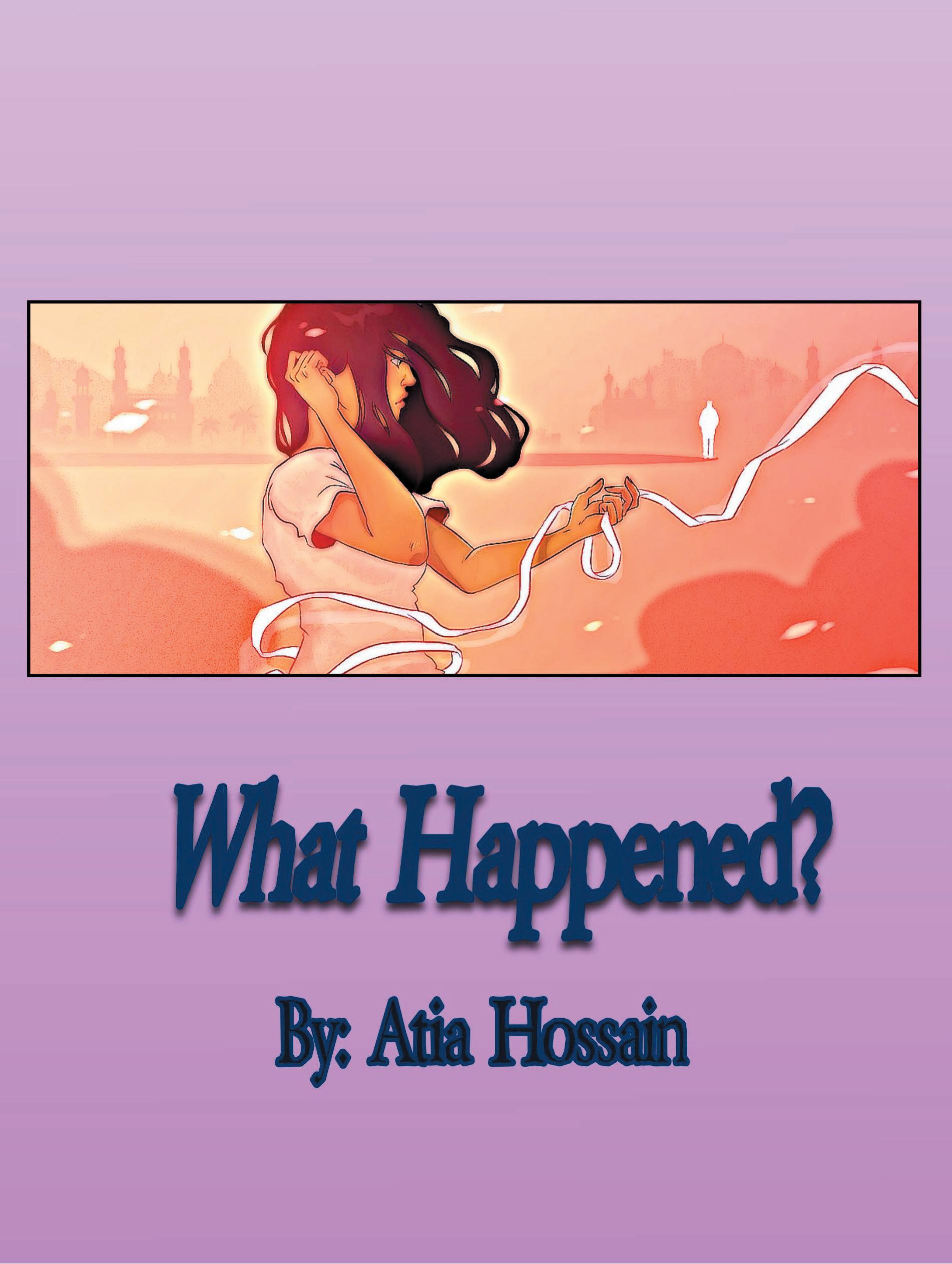
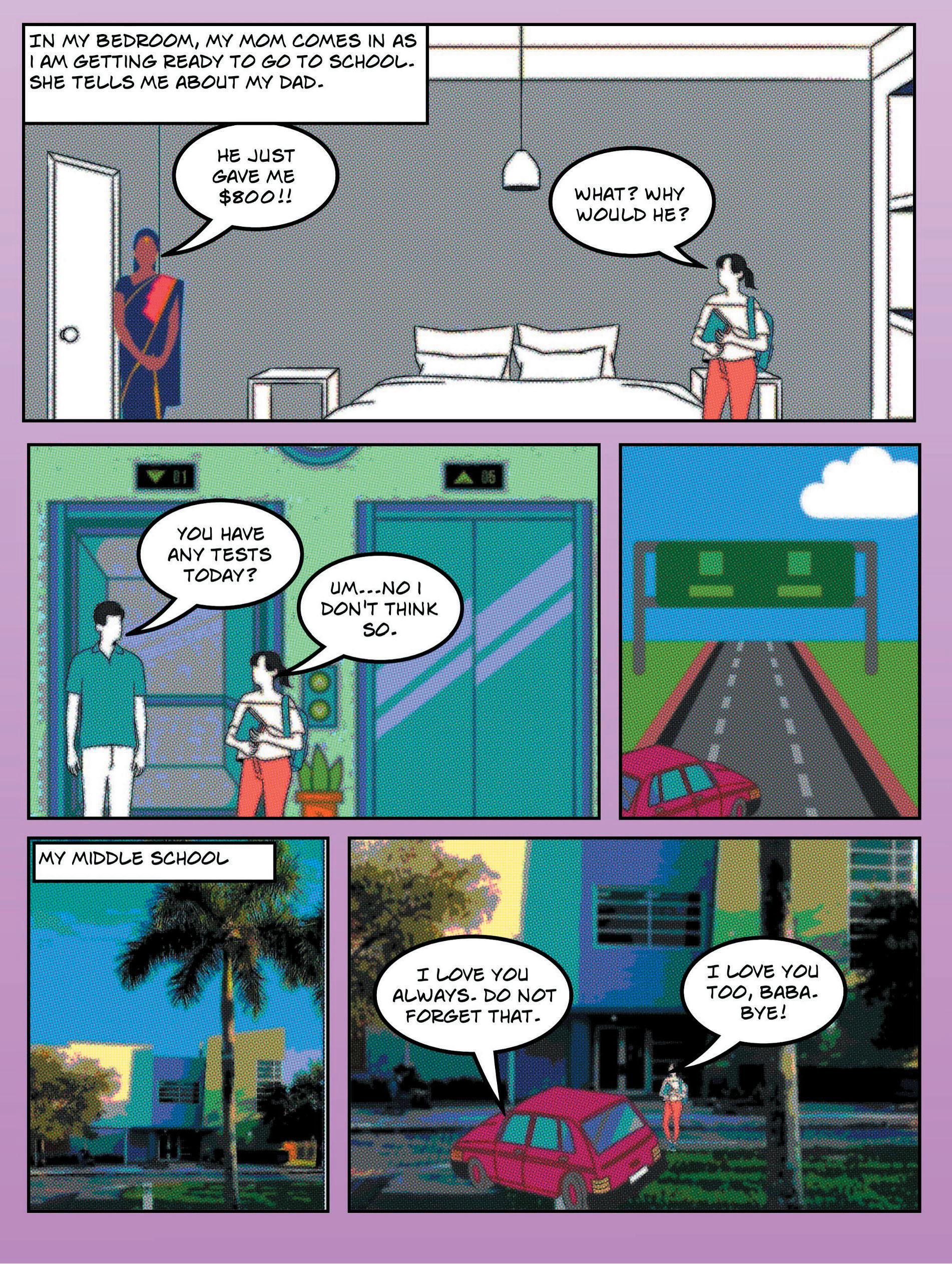
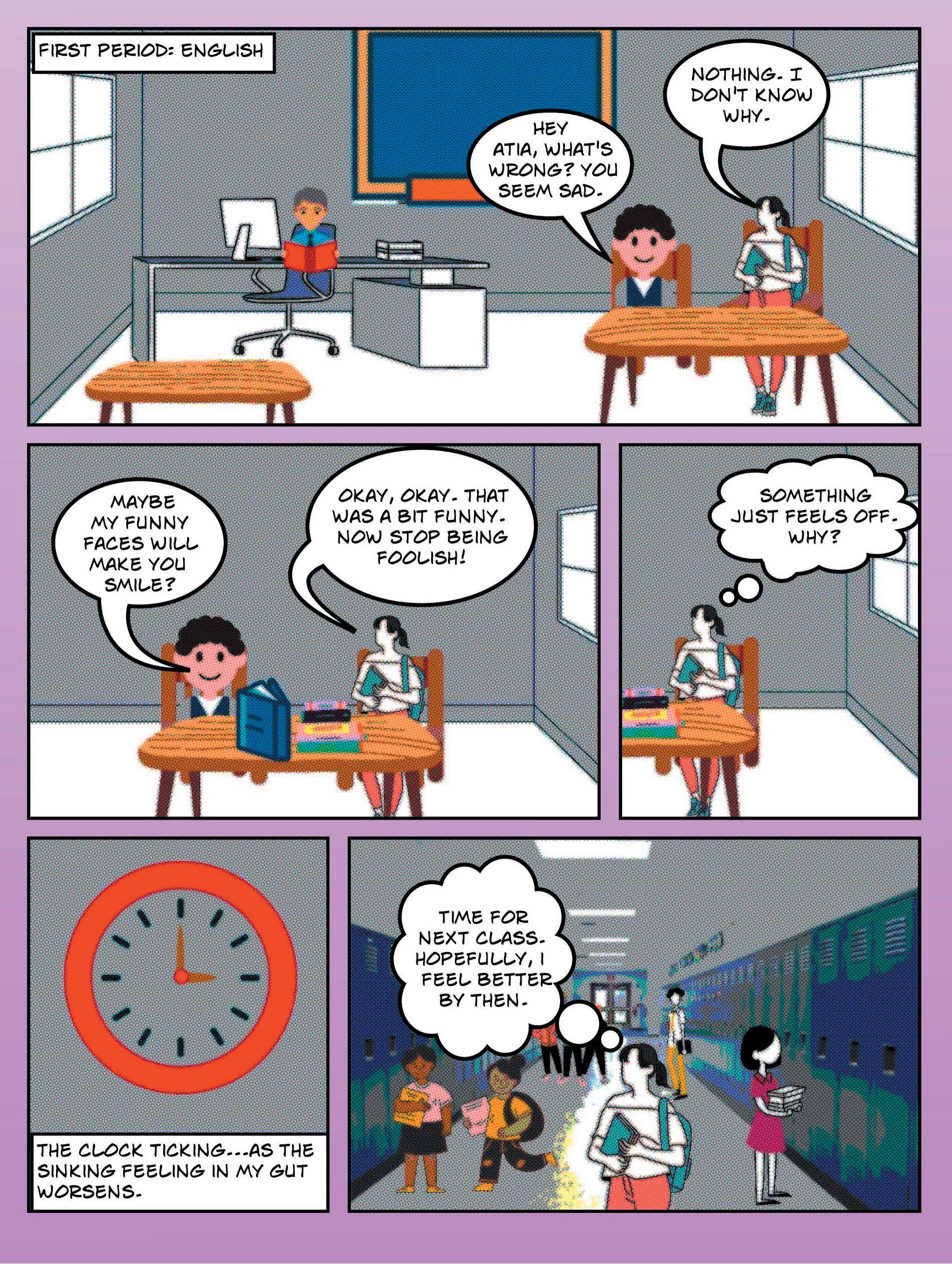
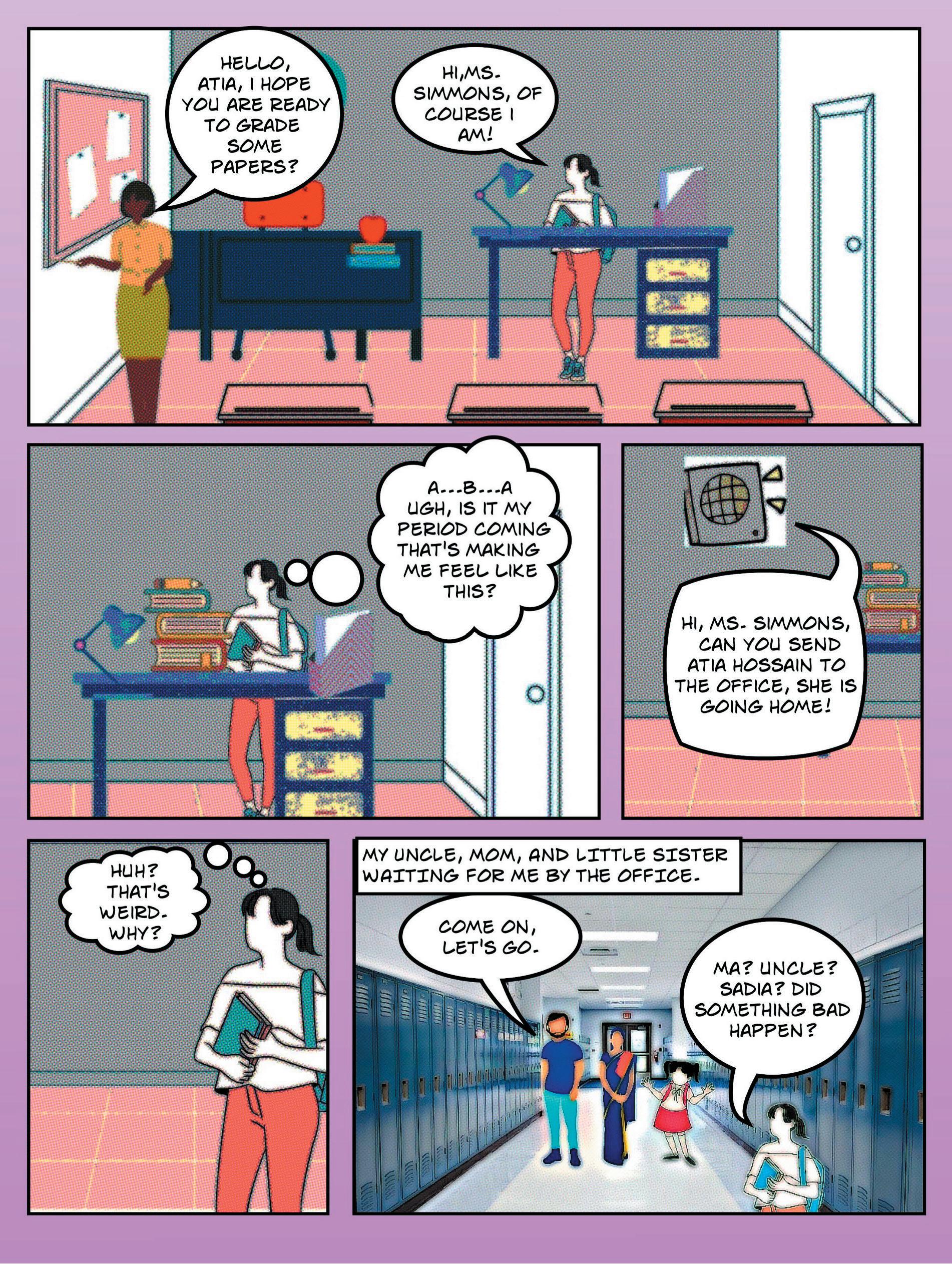
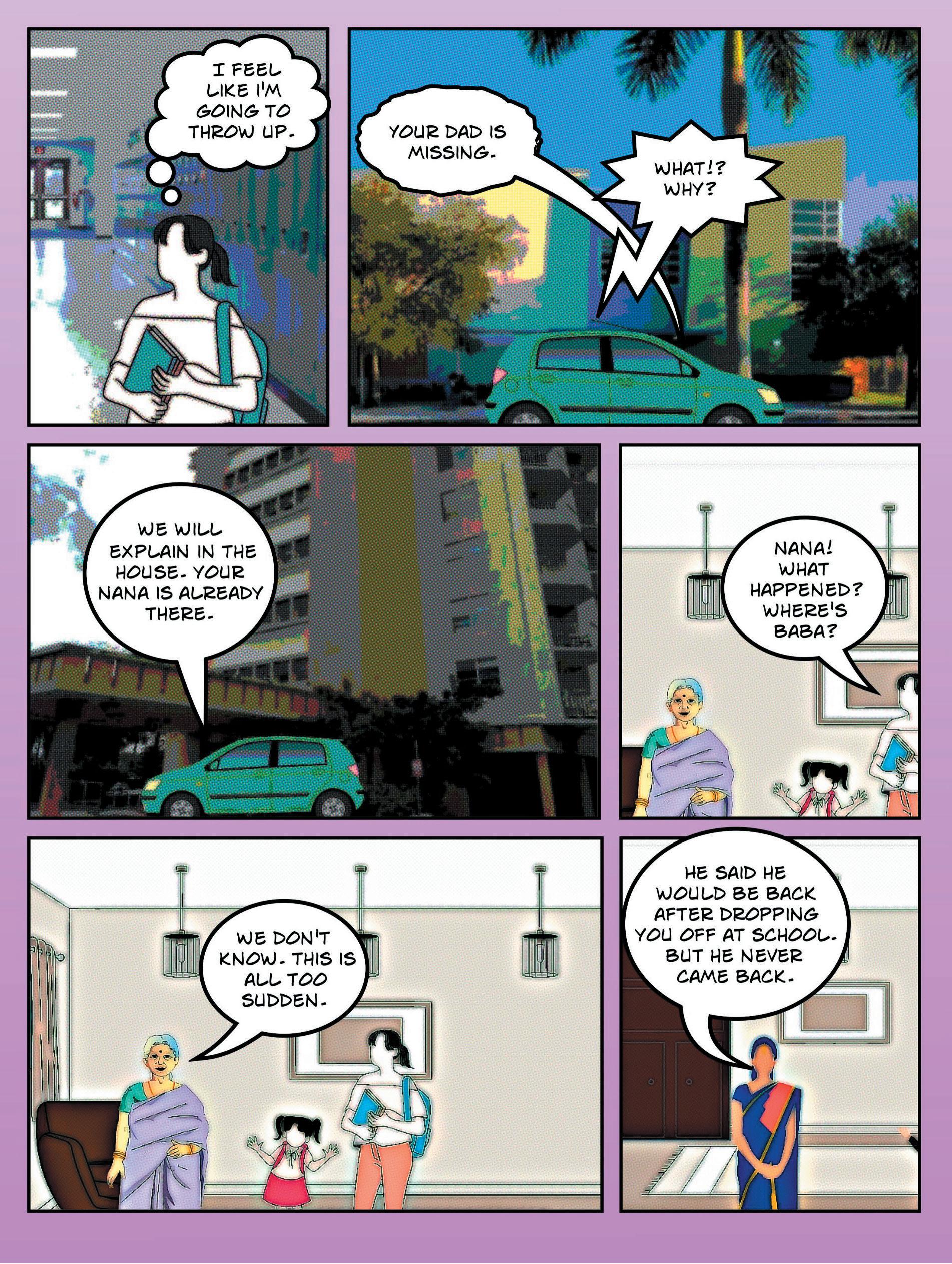
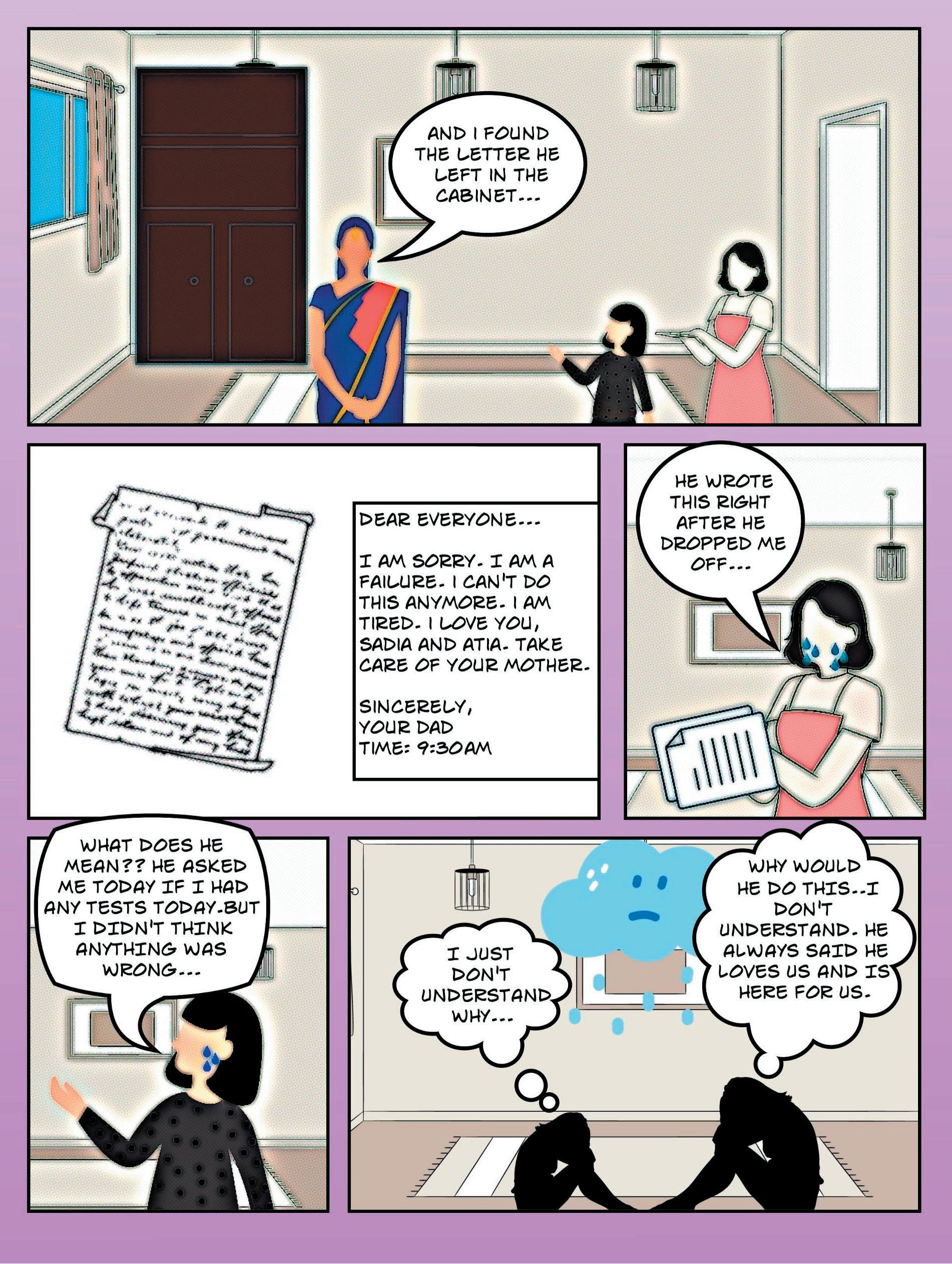

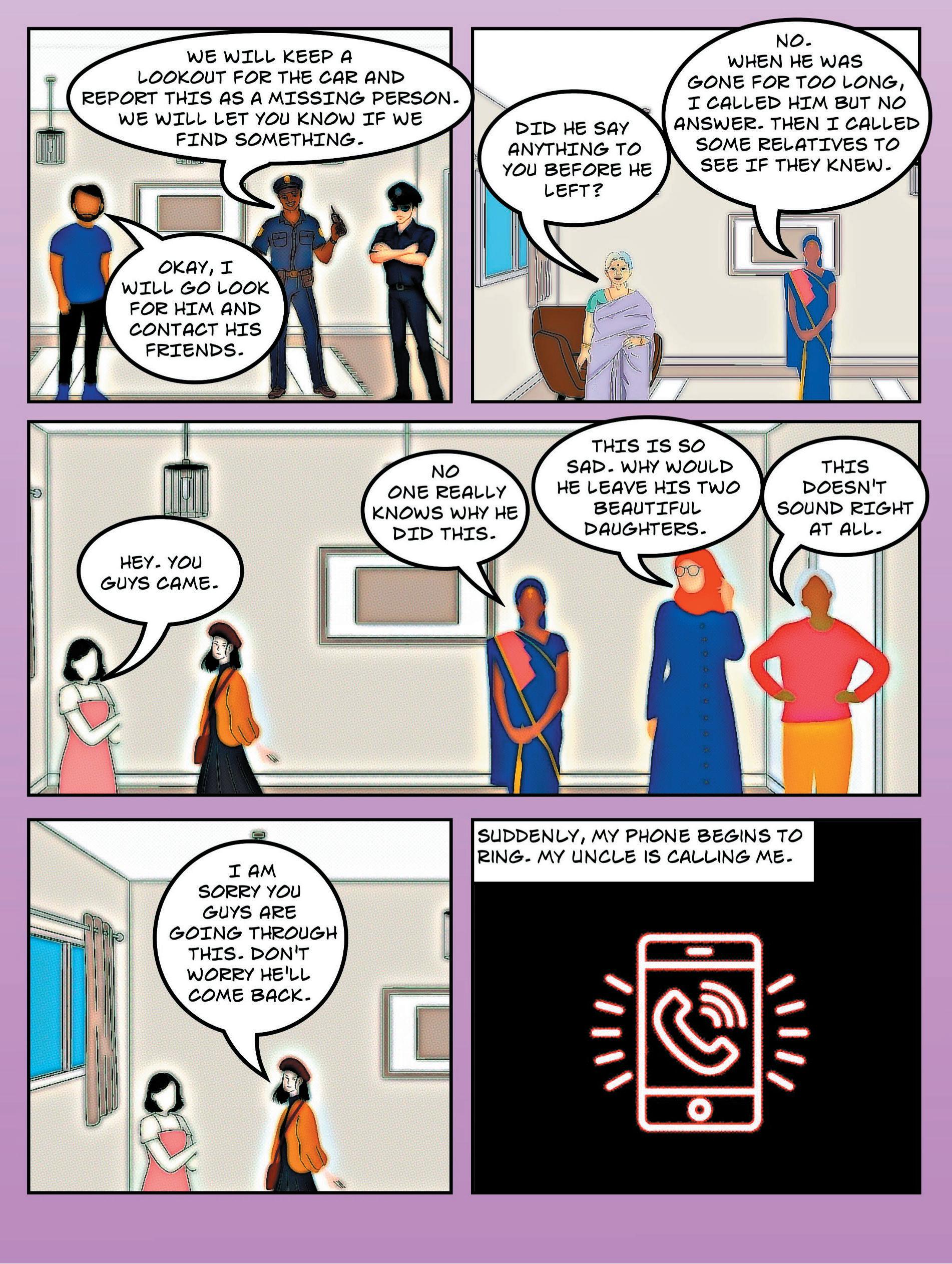
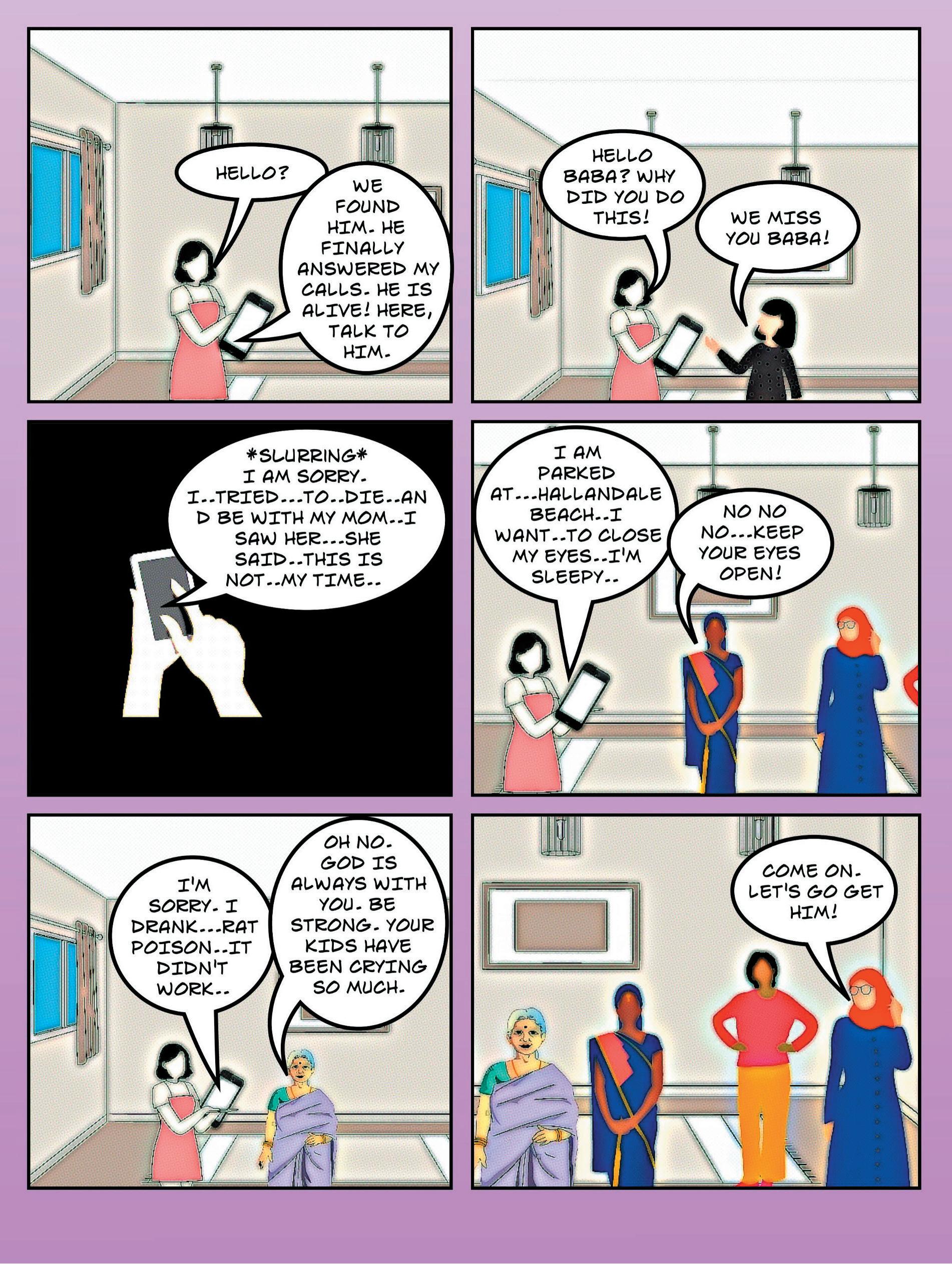
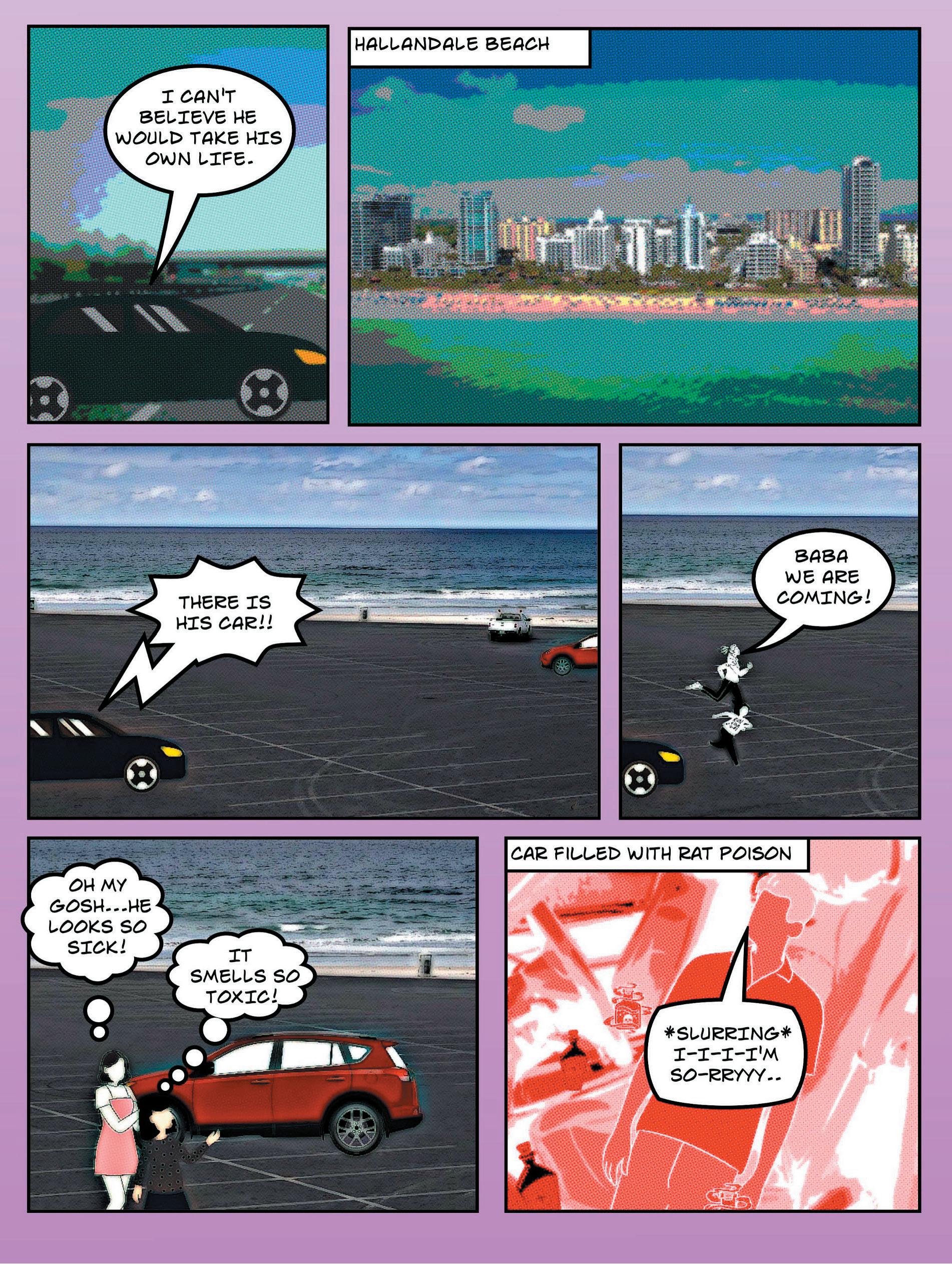


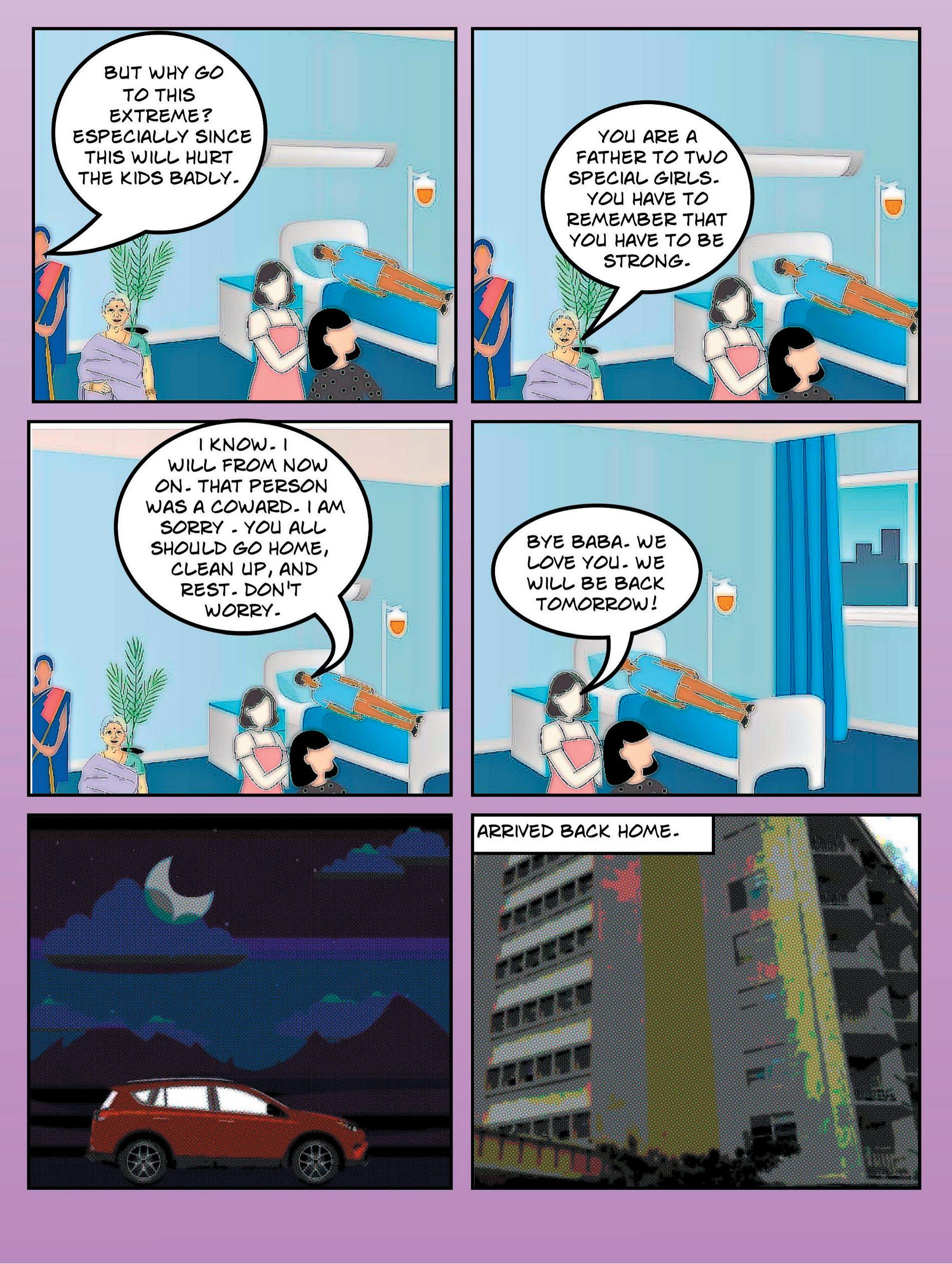
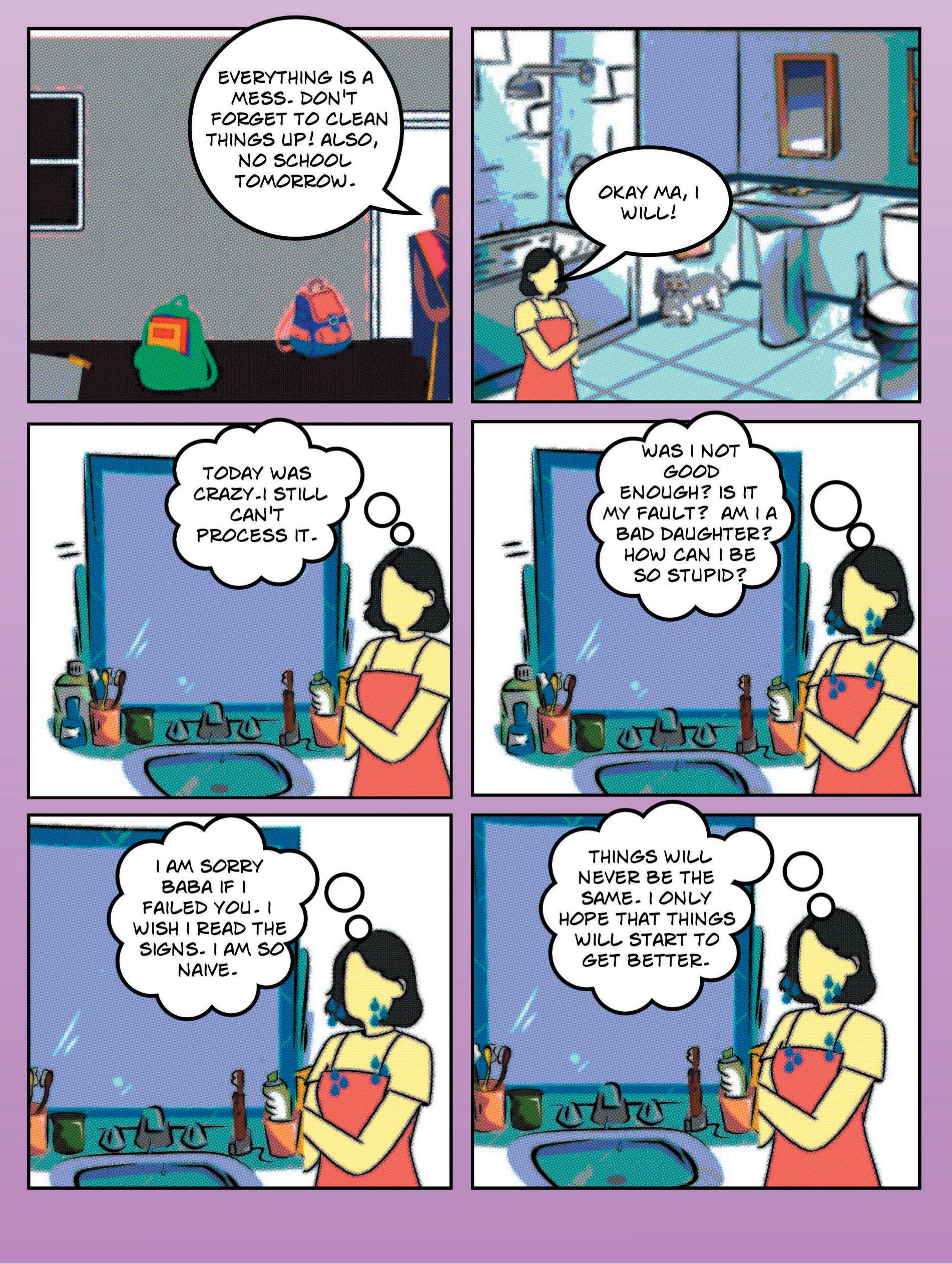
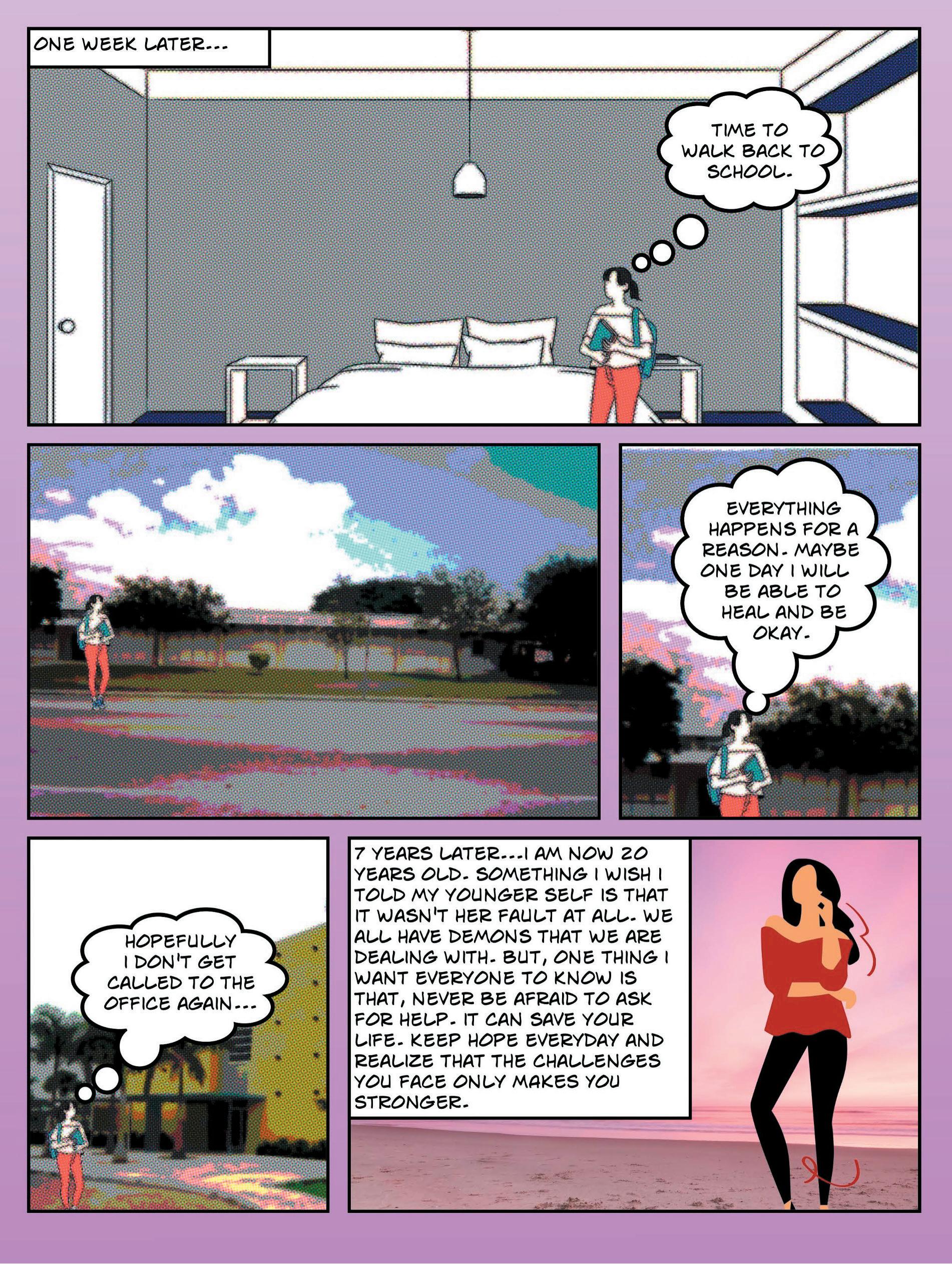
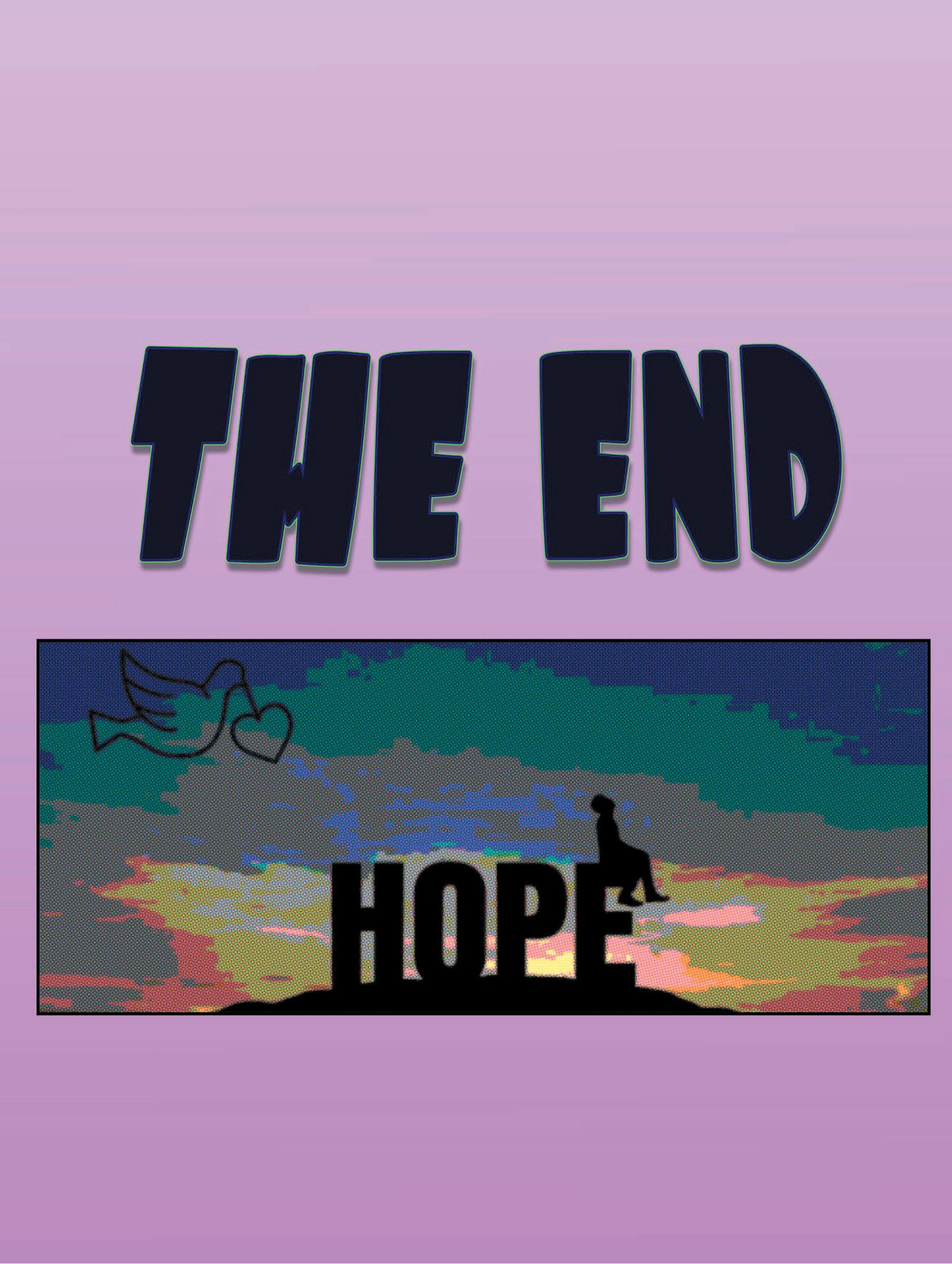
 Jose De Jesus Garcia-Cuellar
Jose De Jesus Garcia-Cuellar
I bump into a dresser and a picture frame falls; an image is shattered. Now I live with the consequence of broken glass. Is this something I should pick up or fix up or let it pass?
Regardless, it’s all the same, this picture frame will never be the same. It was my favorite picture, I see it every day, it was an image that carried my name, it was the image I created for myself and somehow, I sabotage it by bumping and shattering this frame. Such a clumsy move so careless this is how quickly one can change things.
It saddens me, I can’t take it back, this is something I have to live with and accept the fact. But even if this image is shattered, there’s still many more pictures in this room, there’s still more to me than one picture in this room, there’s still more frames that I can buy and rebuild this picture of myself, I don’t always have to cry.
I have to let this go and time will do the rest, I’ll just have to build a new image and find a new frame, it’ll be for the best.
Somehow this should suffice, but I’ll do my best to pick up my pieces... and RISE.
Everyone is aware of the current rise of feminism, but how was it during Shakespeare’s times? The height of patriarchy was at its peak. Allan G. Johnson defines patriarchy as, “... a kind of society, organized around certain kinds of social relationships and ideas,” and there is extensive evidence that shows the microscopic switch in gender roles throughout Shakespeare’s comedies, tragedies, and romances. This paper will explore how Shakespeare uses strong female characters to battle the patriarchal normality of the New Modern Era through Katharina, Hermia, and Cordelia, from his tragic and comedic works: The Taming of the Shrew, A Midsummer Night’s Dream, and The Tragedy of King Lear.
First, one must know the definition of patriarchy itself in more detail. Allan G. Johnson’s book, The Gender Knot, states, “A society is patriarchal to the degree that it is male-dominated, male-identified, and male-centered. It also involves as one of its key aspects the oppression of women” (5). This proves true throughout the selected Shakespearean works, as the theme of paternal relationships between Baptista Minola and Katharina, Egeus and Hermia, and King Lear and Cordelia is encountered. These relationships in particular show fathers who want the best for their daughters, but instead of being met with the four virtues of a renaissance woman, they’re met with resistance. Rather than a chaste, obedient, pliable, and silent daughter, these patriarchs are faced with rebellious, loud, stubborn children, who seem to have no regard for the rules and regulations set upon them by the men in their lives.
One might ask, what truly inspired Shakespeare to write about women this way? Well, being born in 1564 proved to be difficult for those from poor social classes, yet, for women, it was even worse. Though Shakespeare only completed his education up to grammar school, he was more intellectual than most at his age. As described by Leonard Barkan in his chapter of The Cambridge Companion to Shakespeare, Shakespeare learned Latin, and read works of Plautus, Virgil, Ovid, and more. Reading literature from before his time truly inspired Shakespeare, using the imitatio tradition, where he took characters and ideas from other writers to put into his own works. This being said, those literary works, as well as Shakespeare’s own life experiences, influenced him. Stephanie Irene Soto states that in the years 1596 up until 1625, the fear of the witch’s power linked a fear which King James I outlines as growing from anxieties surrounding the possibility of an inversion of the gender hierarchy. “… Witches can cast diseases and make men “unable for women” by “weakening the nature” of them” (xiv). The fear that women could reduce men to impotence demonstrates that many anxieties surrounding gender hierarchy were related to sexual power and sexual surrender (58). Soto implies that the world surrounding Shakespeare’s life was that of evil women trying to change the social norms, rather than submitting to their husbands or fathers. This goes handin-hand with the works and characters chosen for this paper, as some women in Shakespeare’s works are defined as rebellious and stubborn, like witches, who refuse to listen to the patriarchal rules placed upon them, especially Katharina Minola from The Taming of the Shrew
Katharina Minola, daughter to Baptista Minola, and elder sister of Bianca Minola, is the titular “shrew” of Shakespeare’s, The Taming of the Shrew. Kate is faced with a less than ideal situation and is forced to be married off, because her sister, Bianca, is being fought over for her hand in marriage. Yet, she is not able to marry until Kate herself is locked into a loveless marriage. Kate’s father, Baptista Minola, is set on marrying Kate off, so he could see who the highest bidder would be in the fight over his youngest daughter’s hand. After trial, error, and a disastrous disguise plot, Kate is sold and shipped over to Petruchio, who seems to have more of an iron-ruling fist than Baptista Minola does. Threatening Kate with lack of food, sleep, and basic hygiene, forces her into submission, leaving little to no room for Kate to get away with her shrew-like tendencies, and soon she becomes the poster child for Renaissance women everywhere by delivering her famous monologue at the end of the play on how husbands should be treated as lords
Kate is known as being very aggressive; she takes no prisoners and will not change her mind for anyone. She is brutally honest, even with those closest to her like her sister, Bianca. “O then, belike, you fancy riches more: You will have Gremio to keep you fair” (II. 1. 852). Even though she is wooed by Petruchio, she does not like him, and she lets her sister know that she is more interested in helping Bianca realize that she doesn’t need to play
the Girl-Who-Is-In-Love if she is interested in a wealthy husband. Instead, she advises, she shouldn’t play her act differently. This reveals Kate’s character. Marianne L. Novy notes, “In his [Petruchio’s] first meeting with Kate and their only scene alone together, he invents an imaginary Kate and an imaginary society that values her: “Hearing thy mildness praised in every town, I Thy virtues spoke of, and thy beauty sounded” (II .1. 191-92). Kate does not let this shift her views, as she continues to be her true self to Petruchio by rejecting, attacking, and belittling him straight to his face. This makes her seem as more of a man than Petruchio is, as her aggressive and standoffish attitude does not change up until the end of the play.
Towards the end of The Taming of the Shrew, we see Kate and Petruchio on their way back so Kate may visit her father, and she is questioned by Petruchio on the lovely weather of the day and how the moon shines brightly. To this, Kate responds that he is crazy, but she is advised against going against her husband, as she will surely end up without food or sleep again, and we see Kate fall back into her forced submission.
Hermia, the daughter of a high-bred father who is in close relations with King Theseus, is rebelling against her father Egeus in Shakespeare’s A Midsummer Night’s Dream. He wants to marry her off to a “suitable” gentleman named Demetrius or she will face punishment. She realizes that if she does not marry Demetrius it is her own life on the line, since she will be meeting death or a life in a convent. She refuses to marry him and demands her own sovereignty in front of King Theseus and her father, Egeus. Then, Hermia plots to run away into the forest with Lysander to escape the patriarchal society she is forced into and to marry the man of her heart’s desire. After a misinterpreted encounter with the fairy folk, Hermia has the love of her life whisked away by magic, as Lysander falls for Helena, Hermia’s close friend. After many confusing circumstances, a search party is sent to look for the young Athenian lovers, who are then found cured of a magic spell. They are happily embraced by King Theseus and are invited to wed alongside himself and Hippolyta.
In the court of King Lear, three young princesses are put to the test by their father to see how he divides his kingdom. In Shakespeare’s The Tragedy of King Lear, the daughters of Lear, Cordelia, Gonerill, and Regan, are asked to show how much they love their father for their shares of the kingdom. The first two daughters feign love upon Lear, but the youngest daughter, Cordelia, refuses to overindulge the King and make a show of her feelings for him. This causes King Lear to rashly banish his daughter, Cordelia, even with the advice of his loyal nobleman, Kent, who speaks against the King’s actions. Cordelia is banished and King Lear faces many complications dealing with his two “loving” daughters, and through a storm that mirrors King Lear’s inner turmoil, he comes to realize that Gonerill and Regan do not love him like they say they do, and they only wish to seize power. After many excruciating circumstances, King Lear realizes Cordelia’s innocence. King Lear proves to be too late though, as his elder daughters have killed each other, and Cordelia, his only loving daughter who tried speaking up for herself, was hung by the orders of Edmund, who has tried taking the throne, leaving King Lear with no daughters, and death for himself, due to a broken heart.
To recapitulate, women in Shakespeare’s times were not treated very well. No matter the circumstances of their rebellion, they always seemed to get put in their place. Kate is forced into a marriage and brainwashed into playing the submissive, perfect Stepford-wife; Hermia, while marrying the man of her choosing, is only able to do so after facing traumatic experiences; and Cordelia, not wanting to exaggerate the love she has for her father, is hung and does not end up being able to own any part of the kingdom. Although all these women were the rebellious inspiration many feminists dream of when it comes to finding a sliver of hope within classic literature filled with toxic masculinity, these female characters always ended up getting the short end of the stick without ever getting to truly get what they want. It might be very exciting to see a woman described in the New Modern Era as a pre-evolution of a modern-day Girl Boss, but these women faced trials that not many women would like to endure in the 21st century, which is why it is so important to continue moving forward and take texts like Shakespeare’s as inspiration to grow and continue pushing for change.
De Grazia, Margreta, and Stanley Wells, eds. The Cambridge Companion to Shakespeare. Cambridge: Cambridge UP, 2001. Print. Cambridge Companions to Literature.
Johnson, Allen G. The Gender Knot: Unraveling Our Patriarchal Legacy. Philadelphia, PA: Temple University Press, 2005. Print.
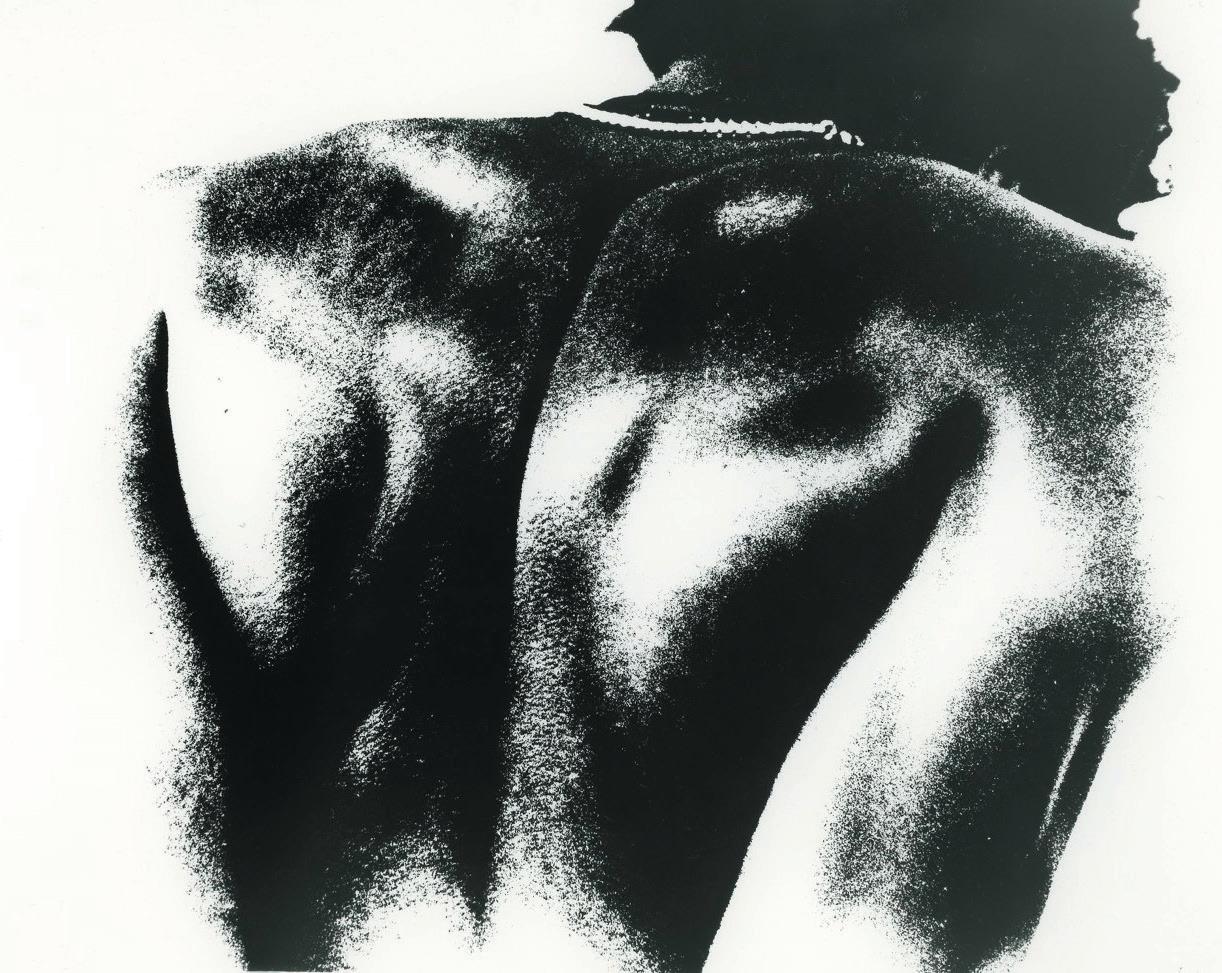
Montrose, Louis Adrian. “‘Shaping Fantasies’: Figurations of Gender and Power in Elizabethan Culture.” Representations, no. 2, 1983, pp. 61–94, https://doi.org/10.2307/2928384.
Novy, Manny L. “Patriarchy and Play in ‘The Taming of the Shrew.’” English Literary Renaissance, vol. 9, no. 2, 1979, pp. 264–80, http://www.jstor.org/stable/43446951.RIA
Rudnytsky, Peter L. “‘The Darke and Vicious Place’: The Dread of the Vagina in ‘King Lear.’” Modern Philology, vol. 96, no. 3, 1999, pp. 291–311, http://www.jstor.org/stable/439219.
Shakespeare, William. The Tragedy King Lear. Third ed., The New Cambridge Shakespeare, 2020.
--- A Midsummer Night’s Dream. Third ed., The New Cambridge Shakespeare, 2003.
--- The Taming of the Shrew. Third ed., The New Cambridge Shakespeare, 2017.
Spoto, Stephanie Irene. “Jacobean Witchcraft and Feminine Power.” Pacific Coast Philology, vol. 45, 2010, pp. 53.
Yes, I know my words are harsh
But it is only because I understand
What is to become of life
What is to become of man
So now; I am left in destitute and sorrow
I do not and care not of smiles to give them
My world is in pain and seeps a slow death
Yes, my love; the Earth has lost her rhythm

Her surface is pocked with hands and sheath
Her inners of blood bleeds, drip dry from black teeth
Man only cares for the thrift of his pence
But will quiver if asked to care for Earth one hundred percent
A lonely girl at the prom
She only wants to be saved
All she asked for was a chance
Performing a ballet of the romancing slave
So, I bid myself to her
And attend to her open lance
What a pity how she is mistreated so much
I offer my hand and give Earth, her last dance
Theresa Afcha is a junior majoring in Photography.
Joyce Azoyne is an English major with a Specialization in Professional Writing and a minor in Spanish. Ever since she was young, she knew that writing made her happy. To her, words are art, and pen and paper have always been her canvas.
Brianna Bapthelus is a junior with a major in English with a Specialization in Professional Writing. She believes that writing is an underappreciated artform. Creative writing is her passion, and she hopes to improve her skills to pursue the career of becoming an author and/or screenwriter.
Arnelle Boucicault is a nursing major who believes writing provides a creative outlet that allows writers to express themselves in ways that may be difficult to communicate verbally. It allows writers to explore new ideas, emotions, and perspectives, and it helps to clarify thoughts and beliefs. Whether it’s fiction, non-fiction, or poetry, writing allows authors to share stories and connect with others in a meaningful way.
Myiah Brown is a junior majoring in Photography. She came in as a transfer student and wants to pursue photography as a profession after she graduates. She wants to showcase her work and travel the world, not only to explore different lifestyles, but to create a new lifestyle, as well.
Crystal Carbonell has an interest in writing, which stems from an obsession with words. She loves to read, talk, and hear stories. Her favorite genres are fantasy, romance, and coming-of- age.
Junior de Norbert Dameus is a Philosophy major who believes writing is extremely meaningful to him. He adheres to the famous African adage that says, “Spoken words may fly away, but written words will stay.” Therefore, through the books that he will write, he will be remembered beyond the years that he will live.
Gilberto Davila Jr. grew up not far from Edgar Allan Poe’s historical cottage in the Bronx, on the Grand Concourse, and it had a large influence. He would occasionally sit on the bench and read his stories, and he would be absorbed into another world. When he first read the “Raven,” he was hooked—and looked back-never more.
Jocelyn Flores is a second-year student majoring in Forensic Photography. She was born and raised in South Florida. Jocelyn is of Mexican descent.
Constanza Garassino is an English major whose interest is mainly focused on fiction, romances, and horror/thrillers. She aspires to be a professional writer in the future or to work in the editing field.
Jose De Jesus Garcia-Cuellar is a Mexican immigrant with hopes of bringing awareness of mental health challenges through the art of writing poetry. He is also a published author of The Guilt Intervention and other bilingual children’s books that offer tools during parent-child interactions.
Nicole Giner is a senior majoring in Psychology with a minor in Fine Arts. She has a passion for art and photography. Her images consist of nature in both black and white and color. She has been pursuing photography since the age of 16, and this hobby has developed into a beautiful passion.
Atia Hossain is pursuing a graduate degree in Counseling with a Specialization in Marriage and Family. She is intrigued by the unique stories people can tell through the use of words or art. She finds it healing and powerful to put your emotions and thoughts in a way that can touch people’s hearts. That is the beauty of writing; it brings everyone together to share and know that they are not alone in their journey in life.
Colin Knight is a Miami-based pediatric surgeon and photographer. When he is not busy with work and working towards earning an MFA at Barry University, he is busy raising two sons as a single father.
Juanpablo Martin is an Education major who enjoys academic writing focused on reflective and critical analysis on educational issues and the visual arts.
Sofia Perez is majoring in Psychology with a Concentration in Forensic Psychology. She was born in Argentina, and she has lived in the United States for nine years. In a world filled with obscurity, abuse, prejudice, and hatred, she aspires to change the stigma associated with mental illness, assist children in need, improve the criminal justice system, assist relationships and families, and leave a positive mark on everyone she meets.
Josselyn Lucia Pinacho is a Forensic Psychology major. Since she was a little girl, writing has always been her therapy. She has kept journals for as long as she can remember. It has not only been therapeutic for her, but it is also a way to hold on to memories that she never wants to forget.
Angie Rodriguez is a Vocal Performance major. She’s a 22-year-old woman who has always enjoyed a good story and conversation. Why not have both within her writing? Although her major is Music, she’s always dreamed of writing something interesting, maybe not for fame, but for fun, so she did.
Lojan Shaker writes to give voice to those who don’t like to express their thoughts through speaking. Writing is compelling to her because she is one with those who would rather write than speak.
Ray Taltoan is a Cybersecurity major who is originally from Lancaster, Pennsylvania. He moved to Florida with his family about five years ago. His interest in writing mainly comes from his interest in music, especially rap. He credits being exposed to music at church for igniting his interest.
Suzannah Young is an emerging journalist from Kansas in her final year of undergraduate studies at Barry University.